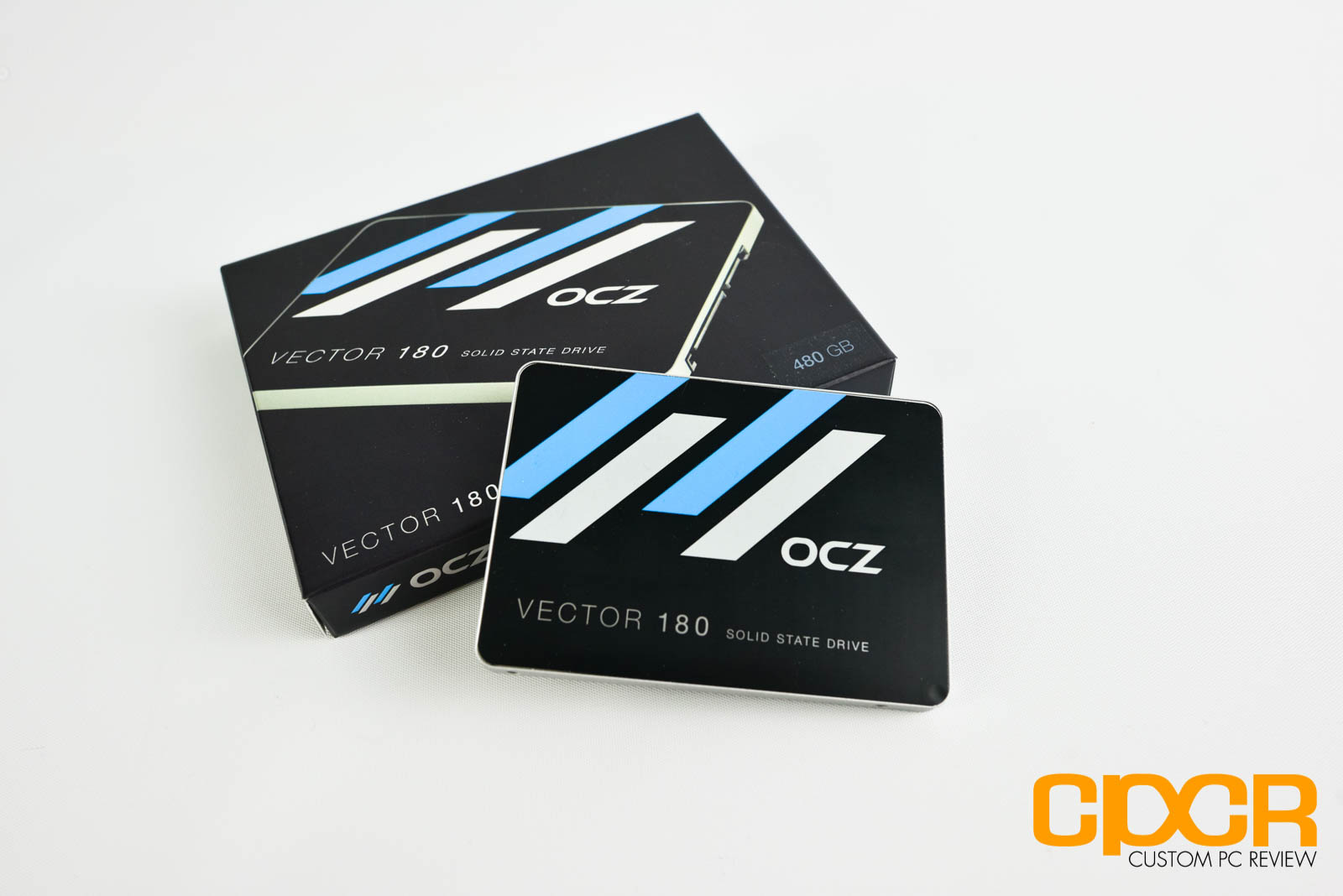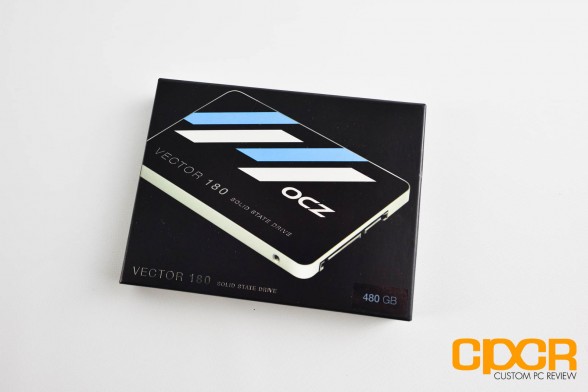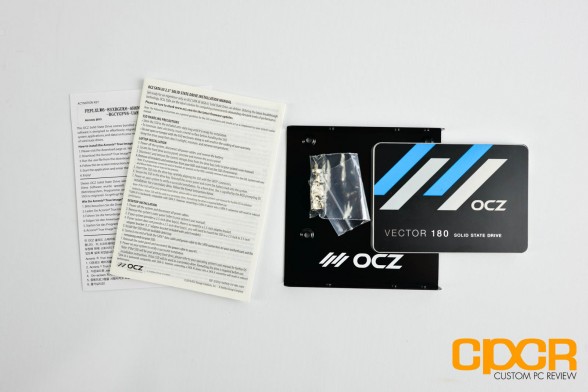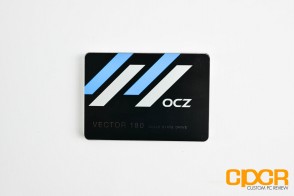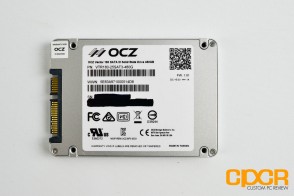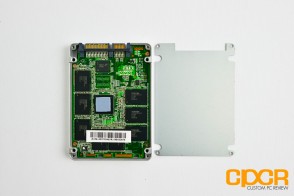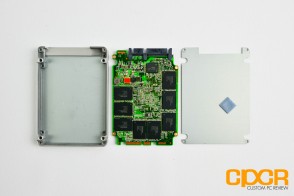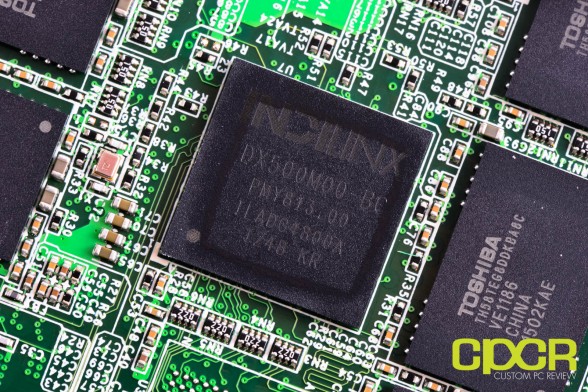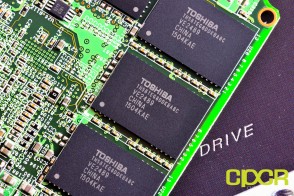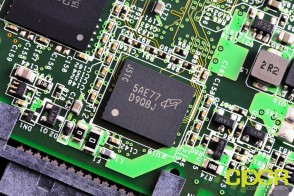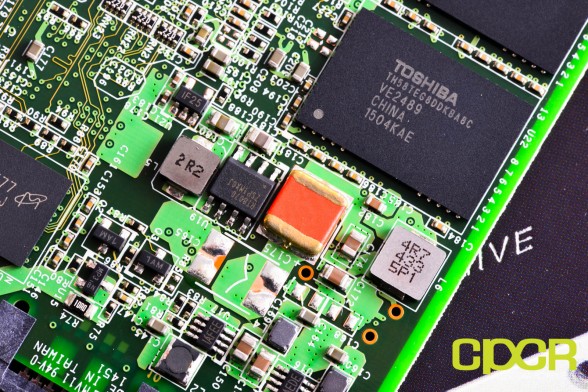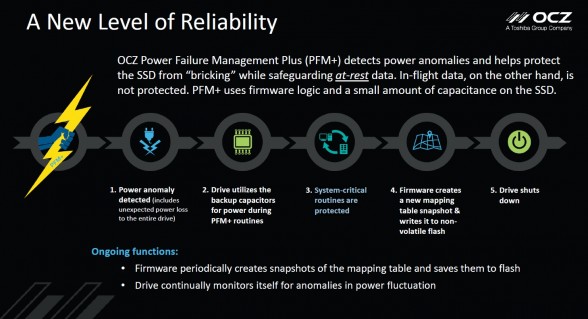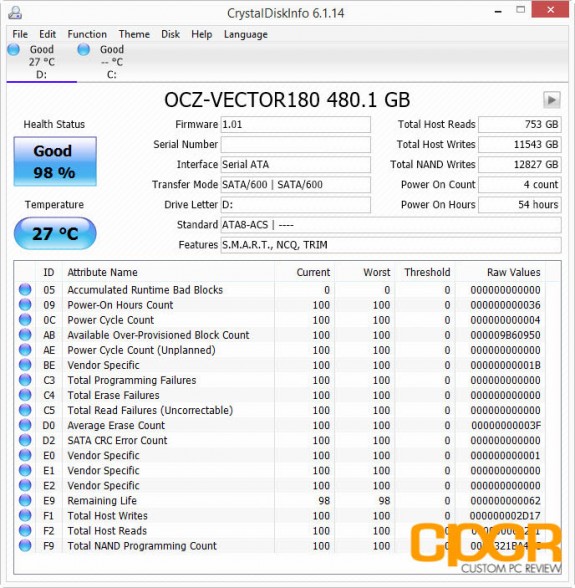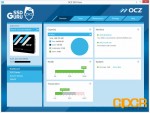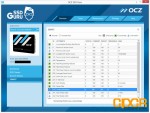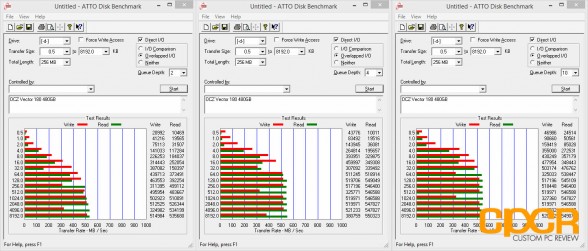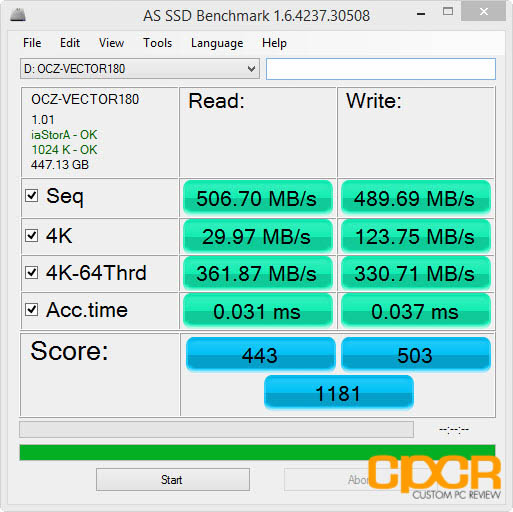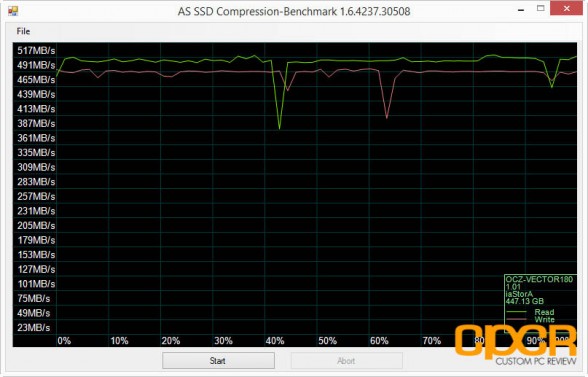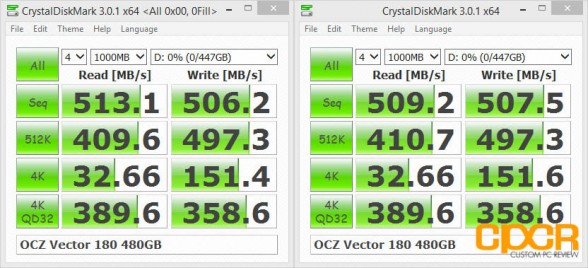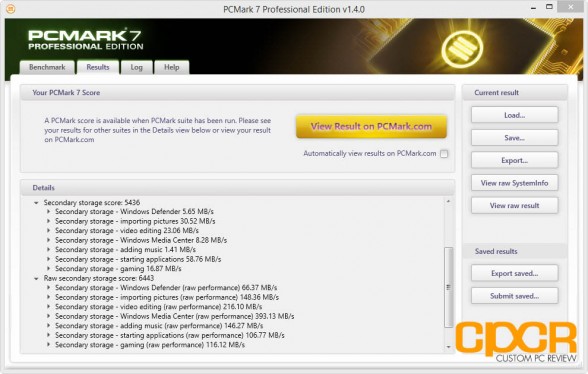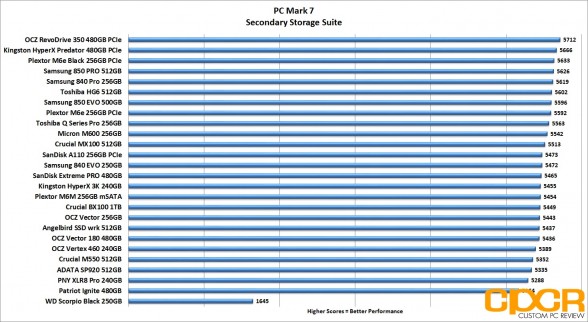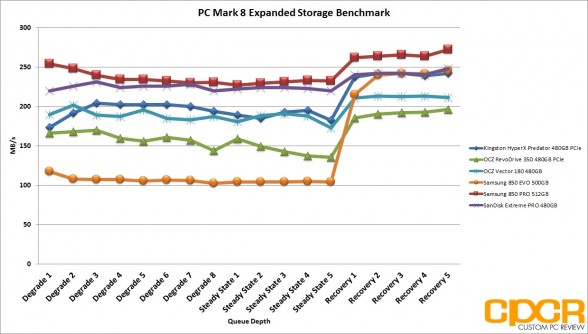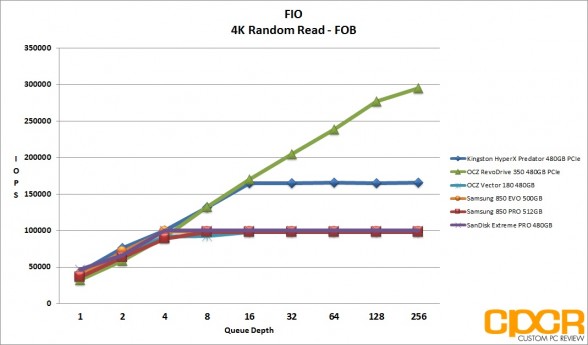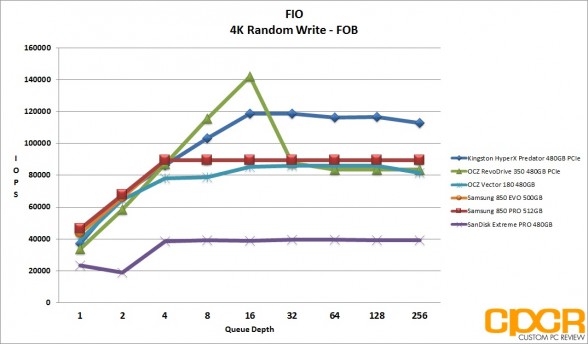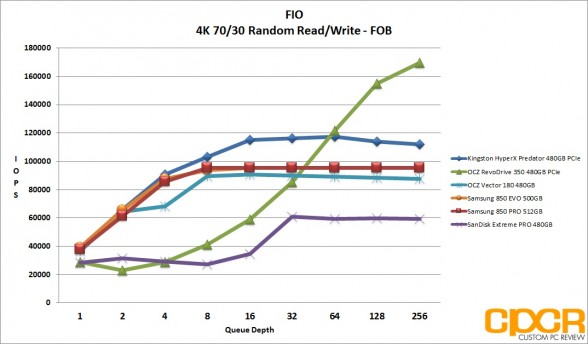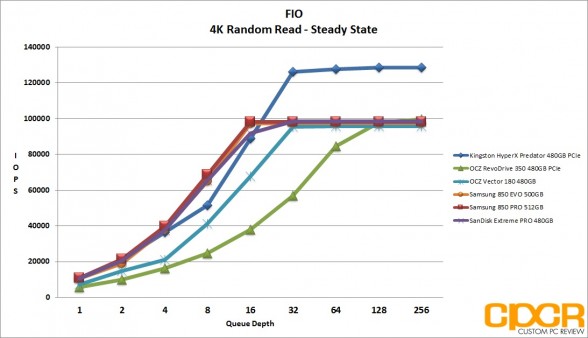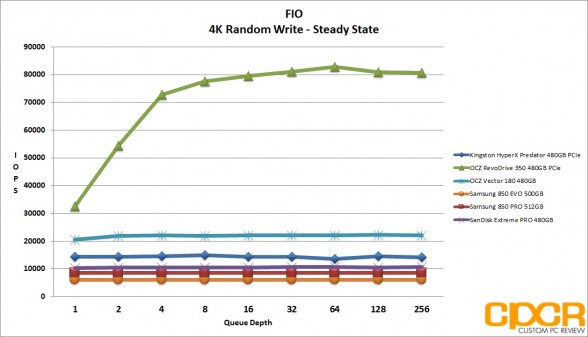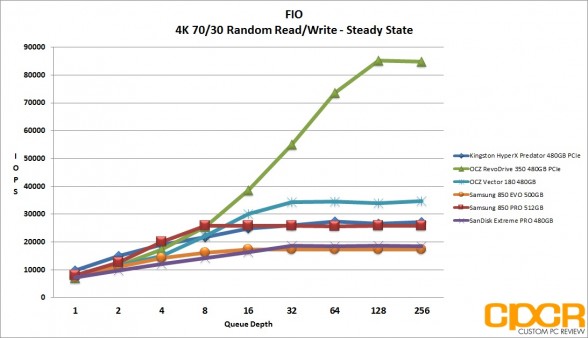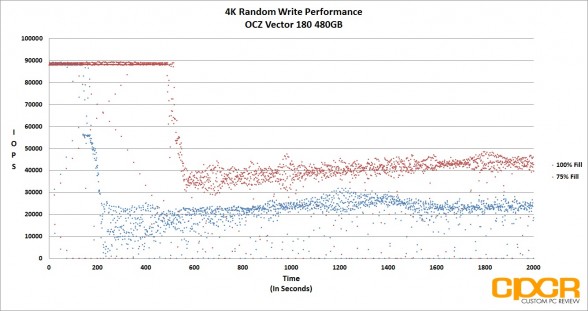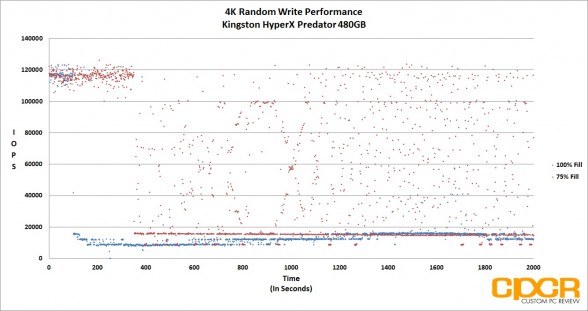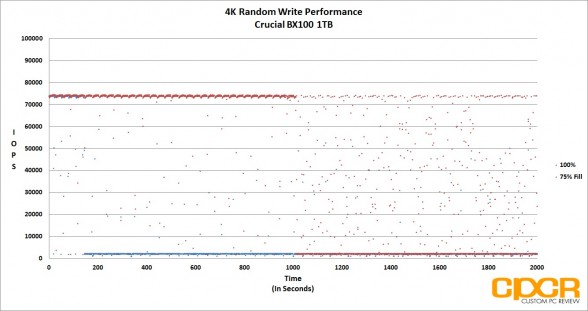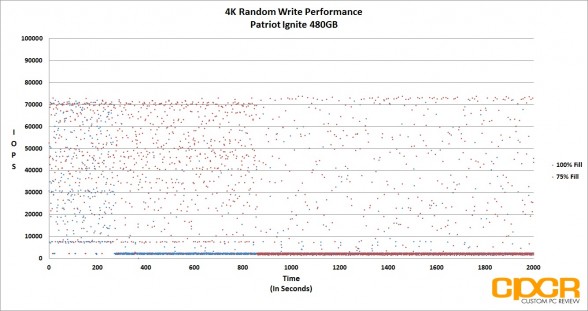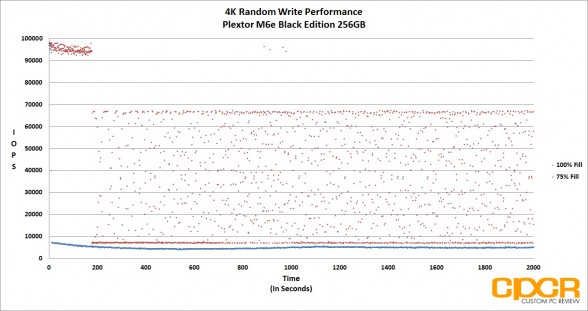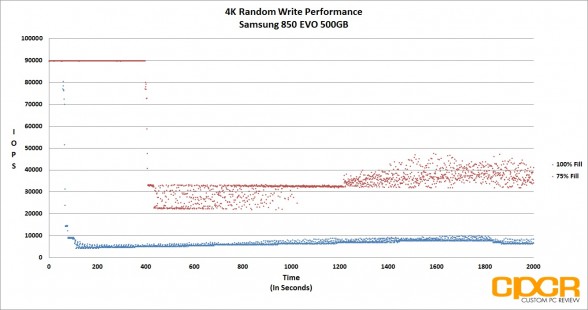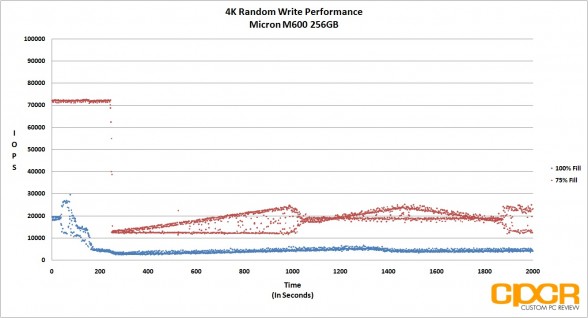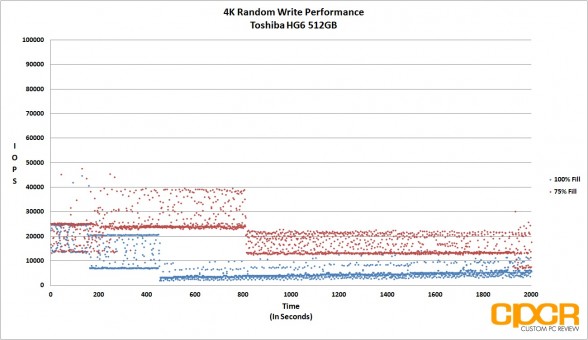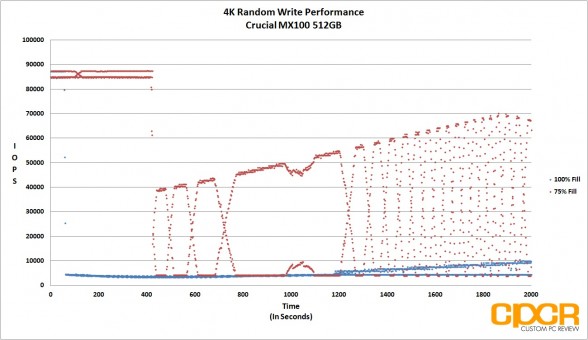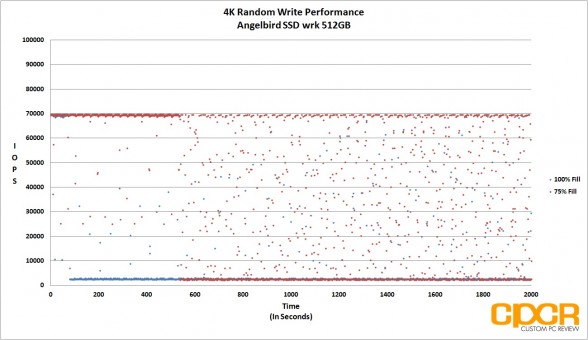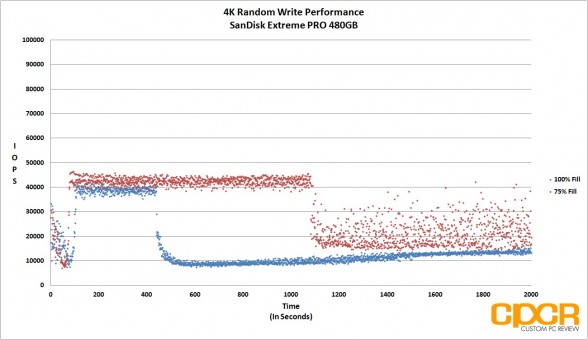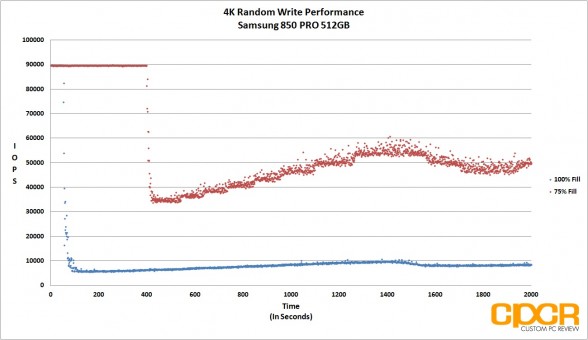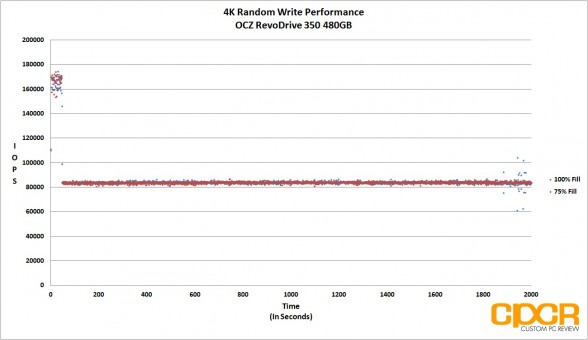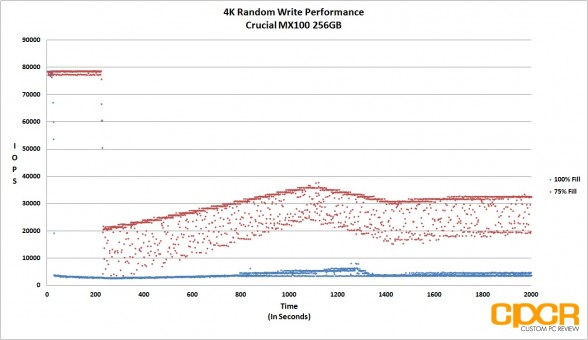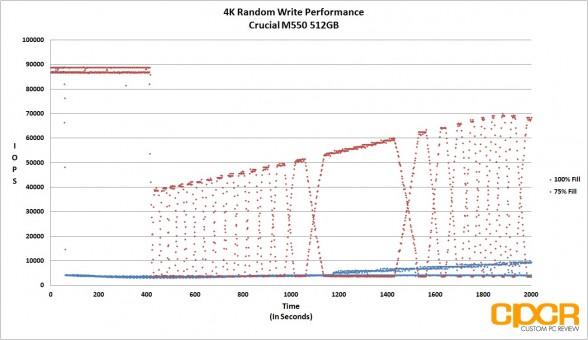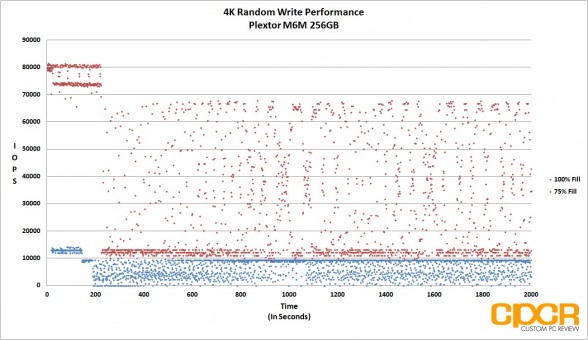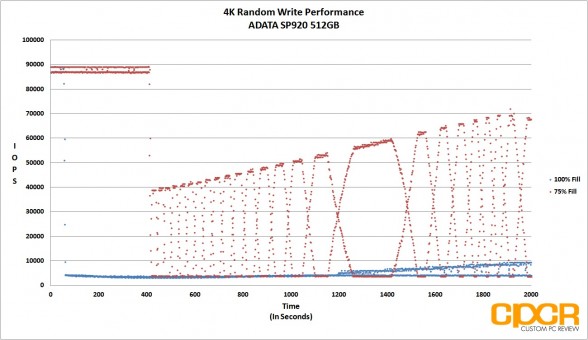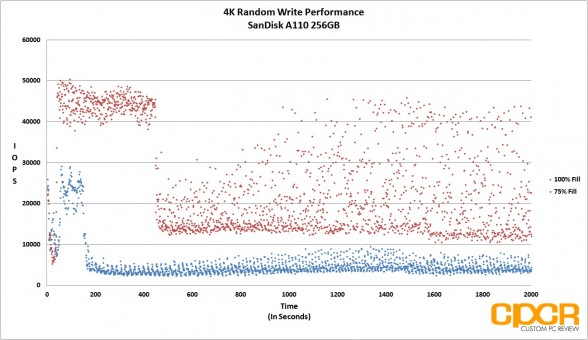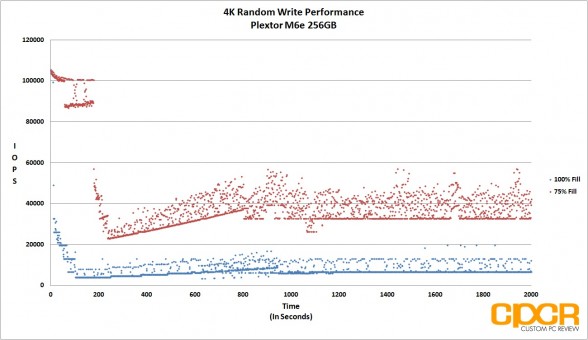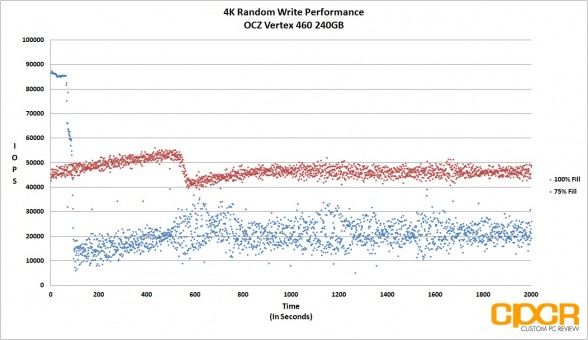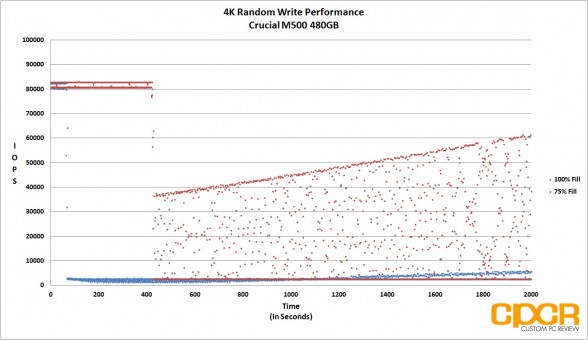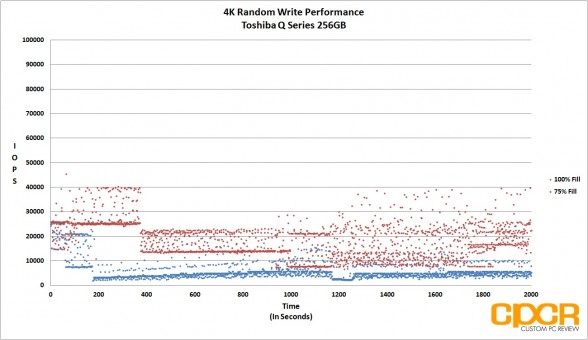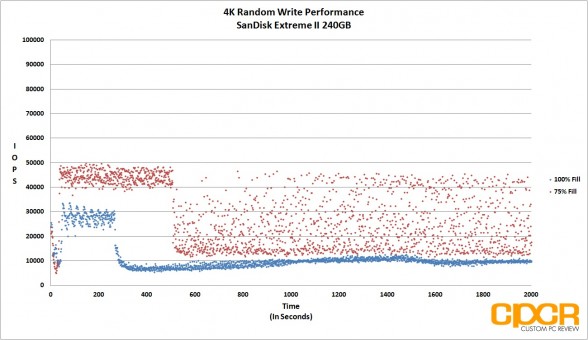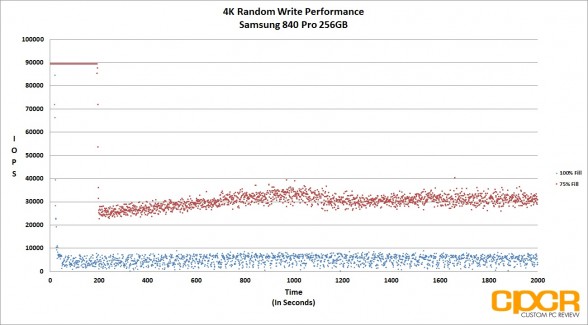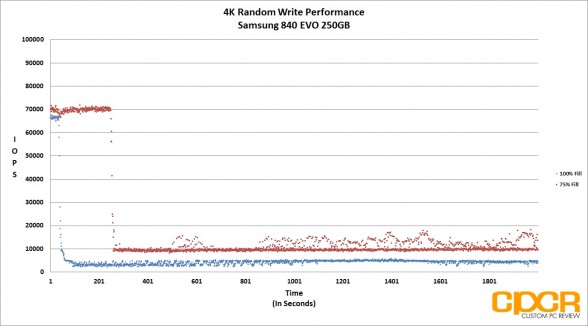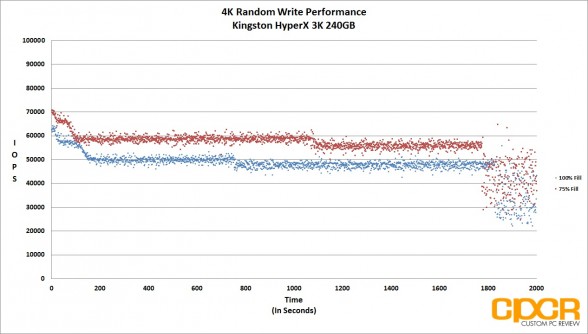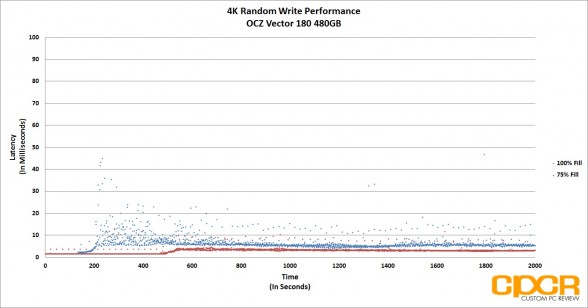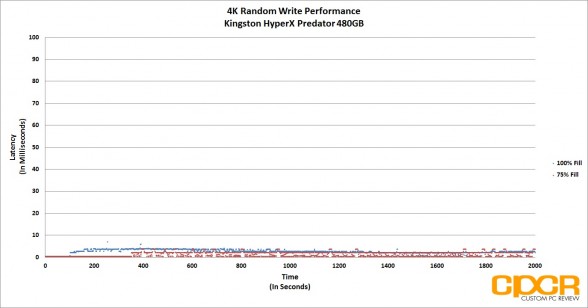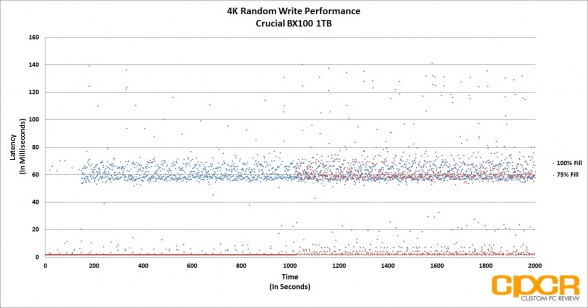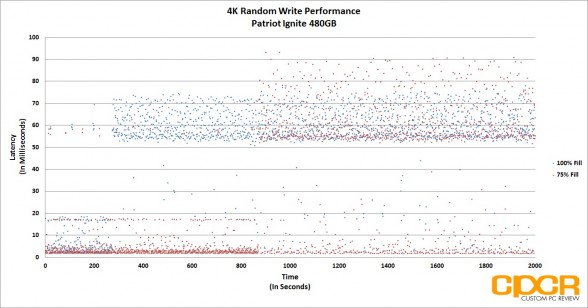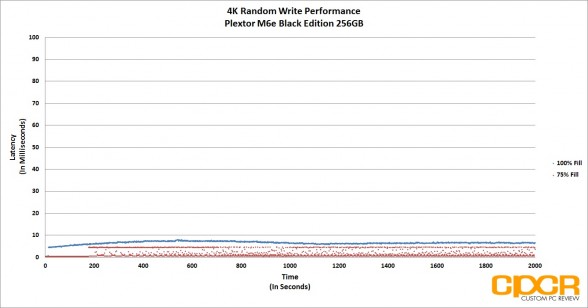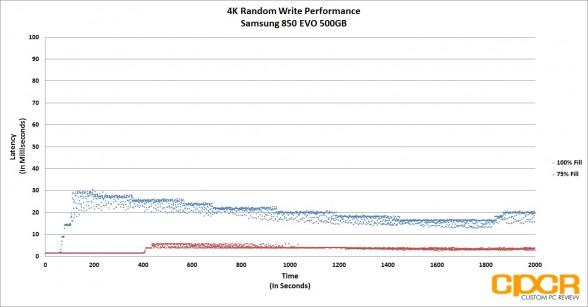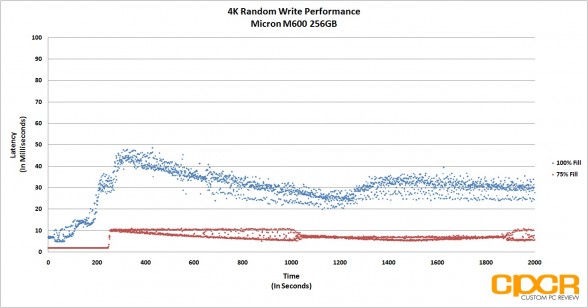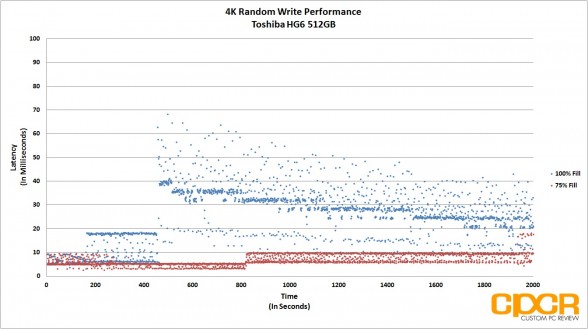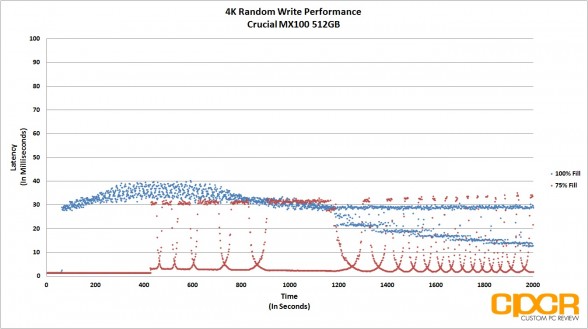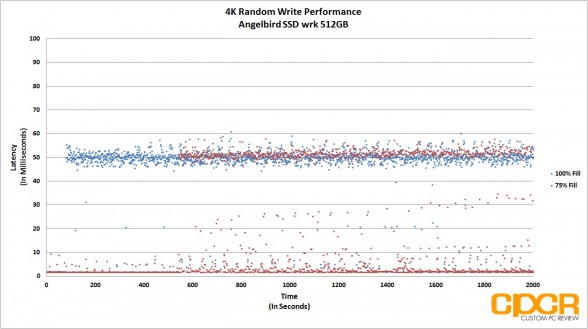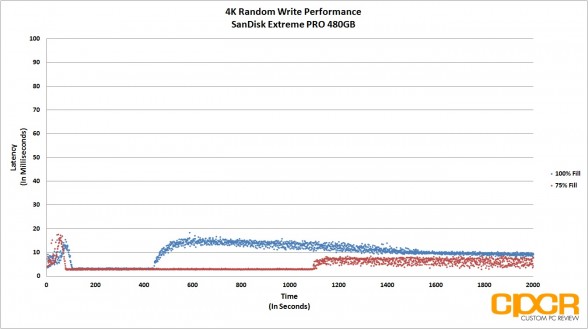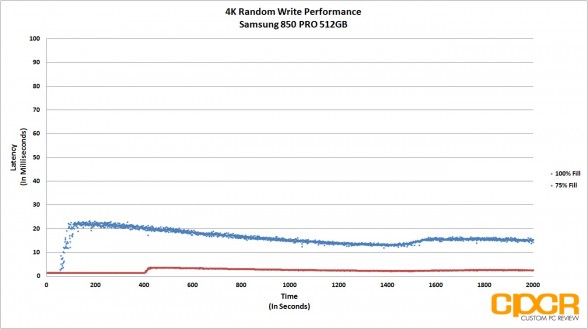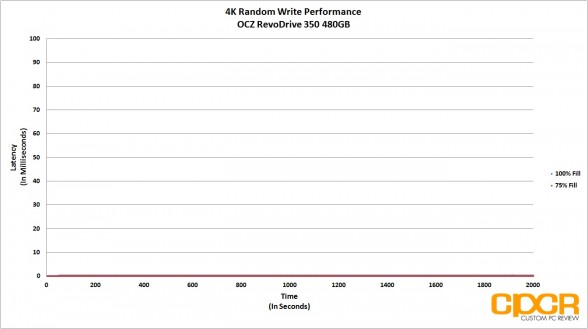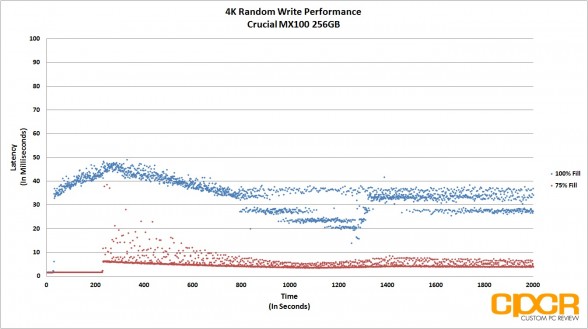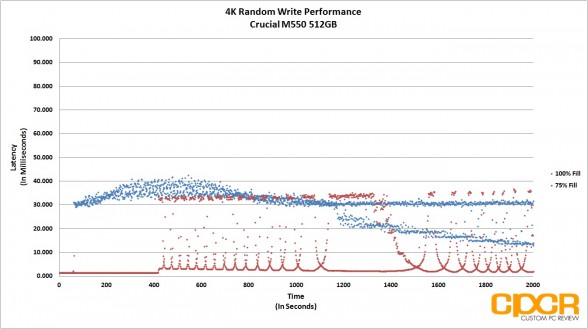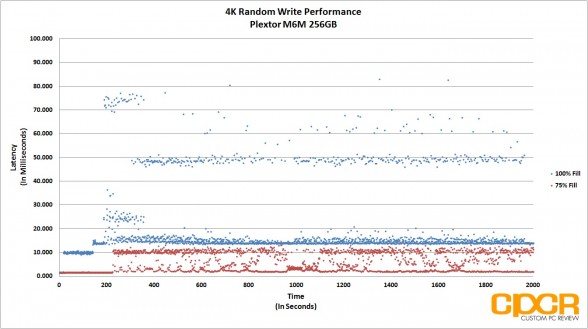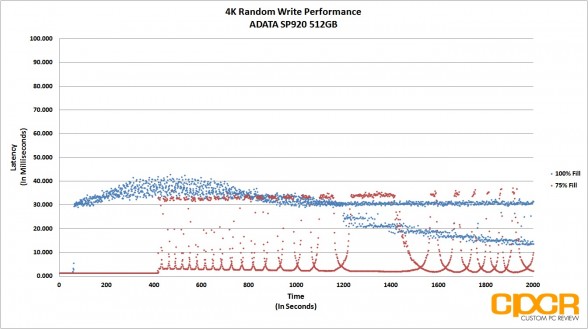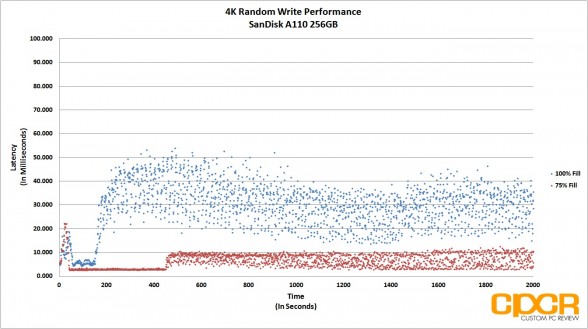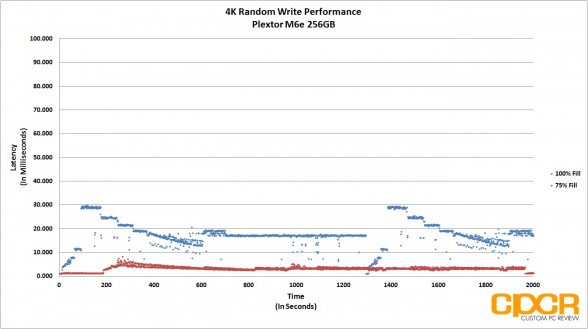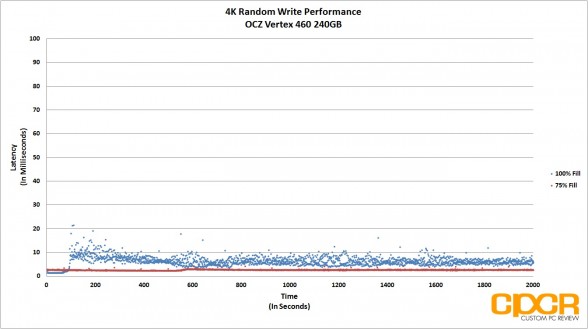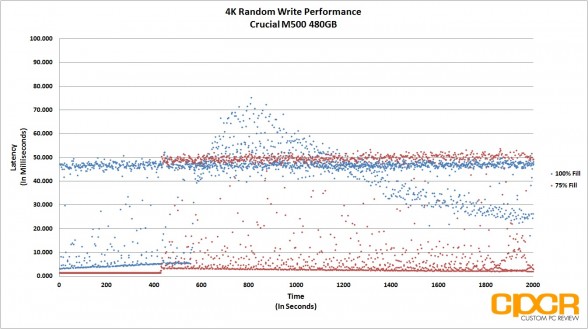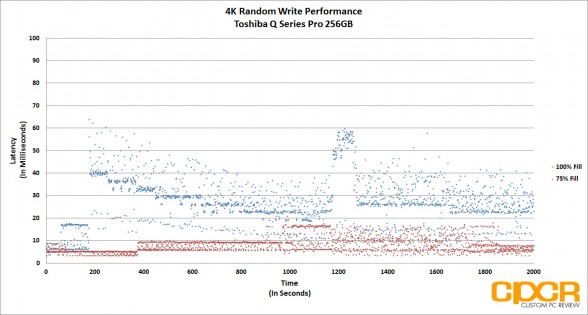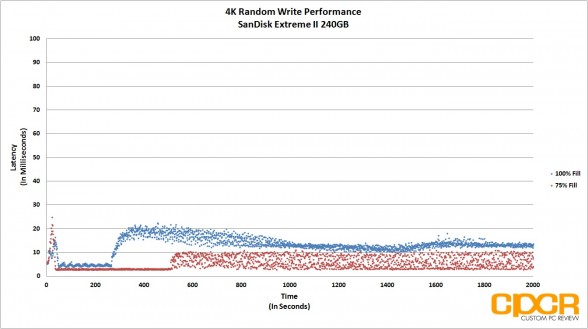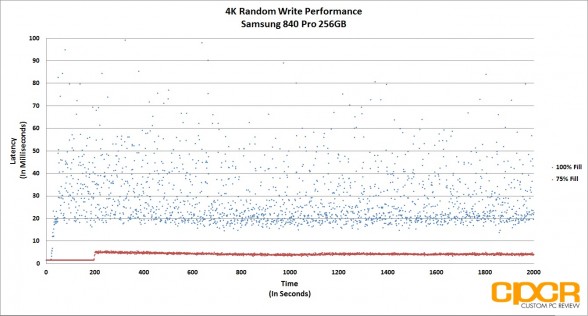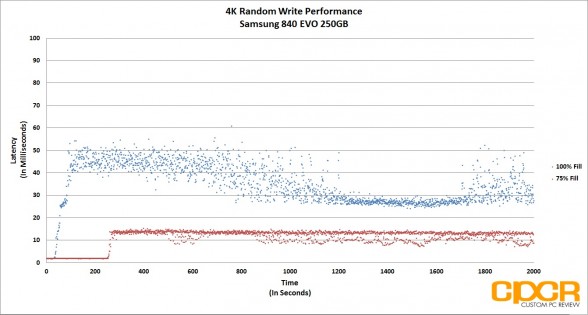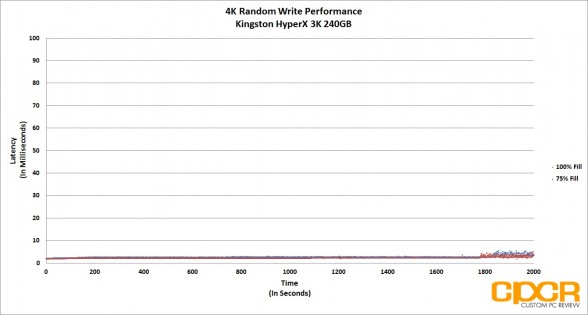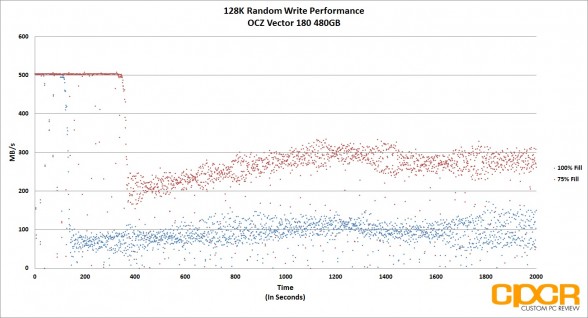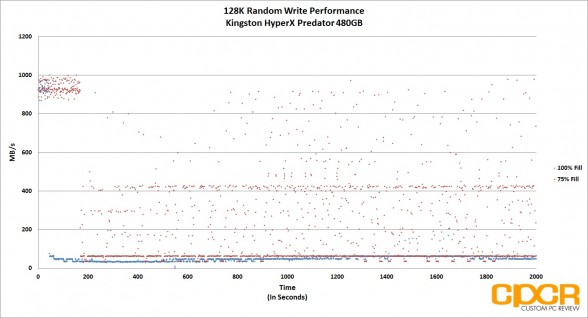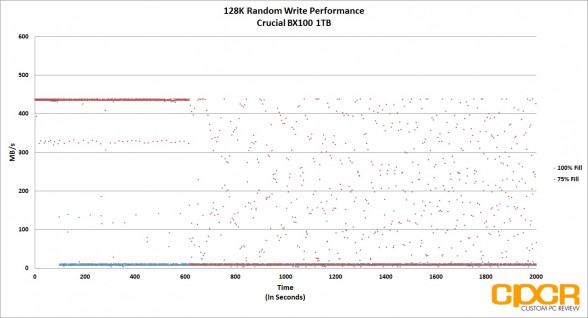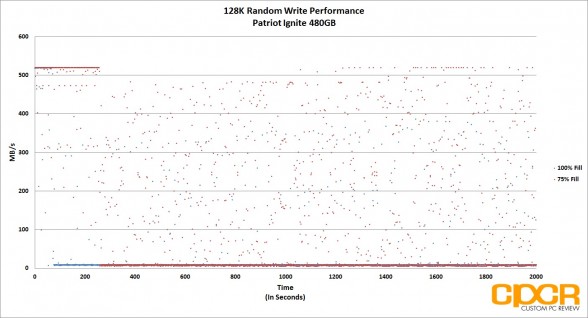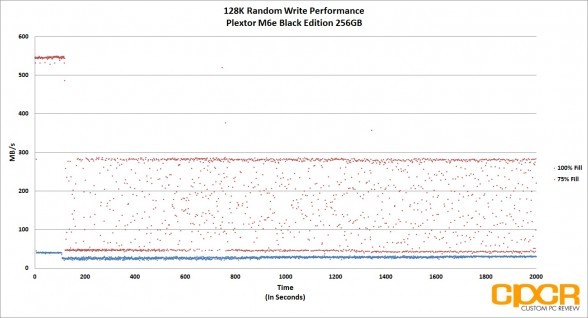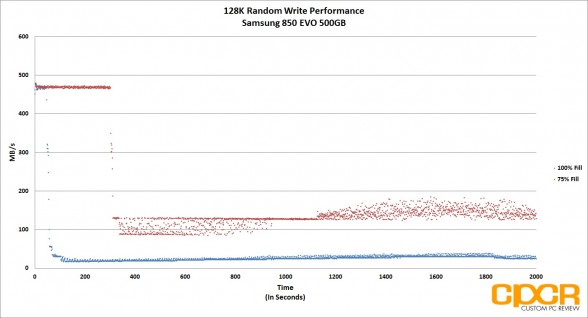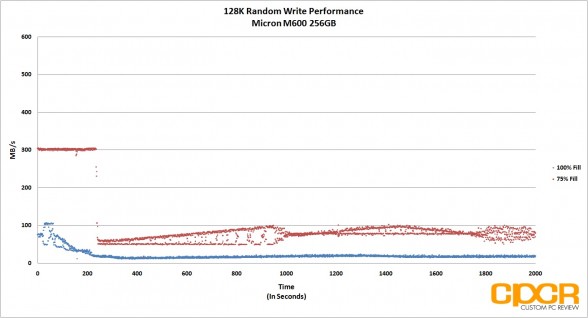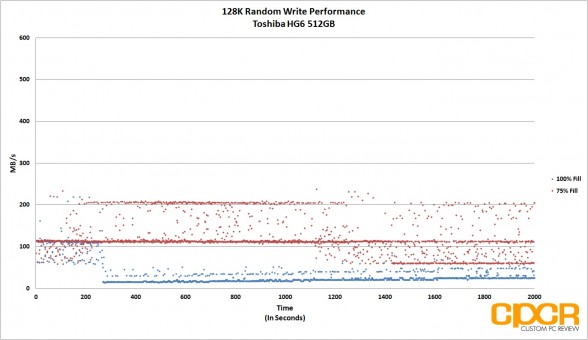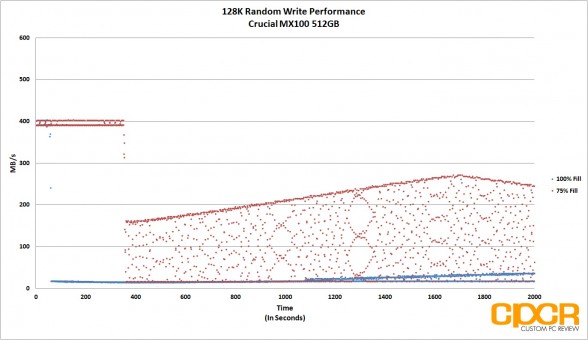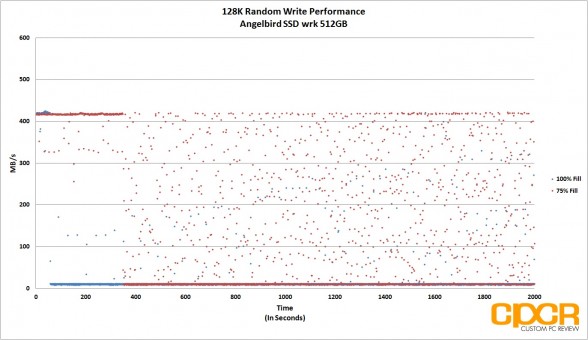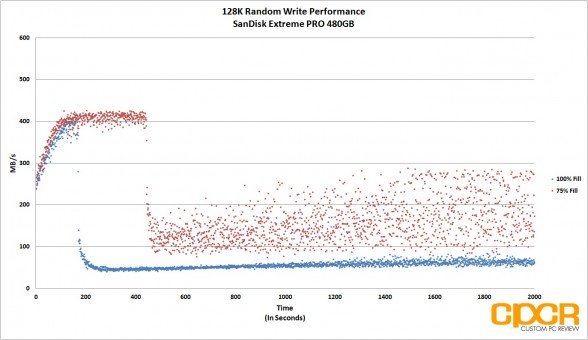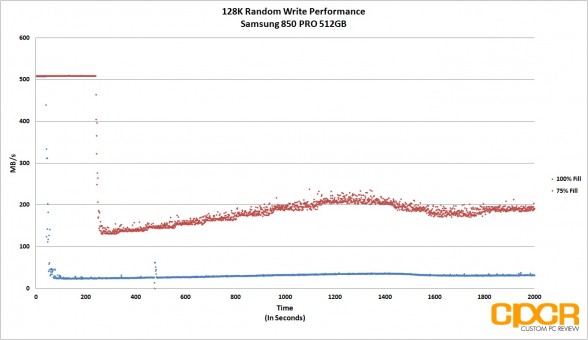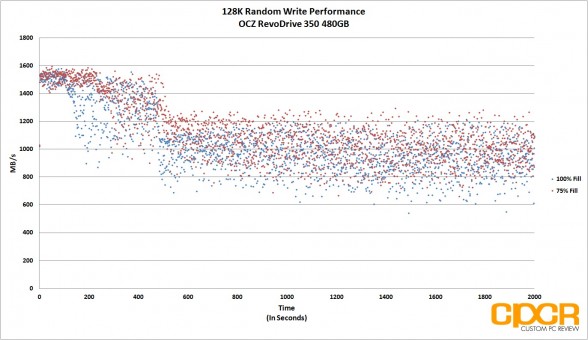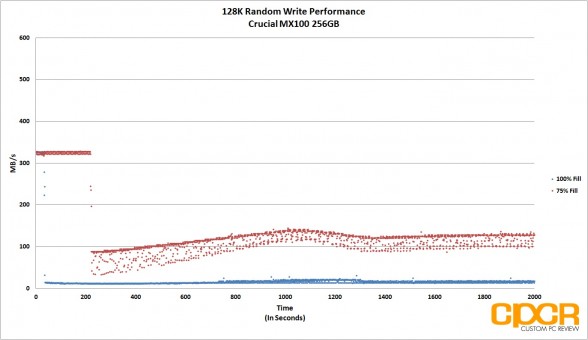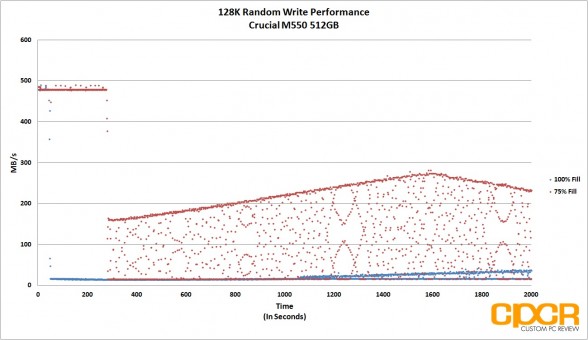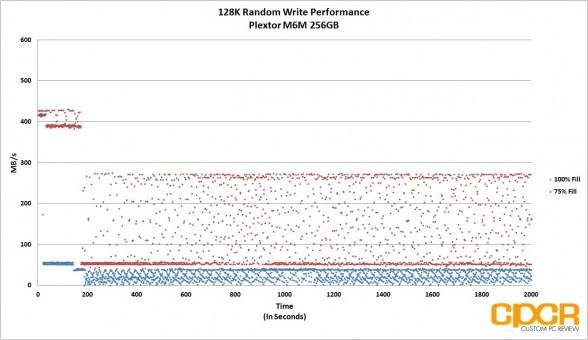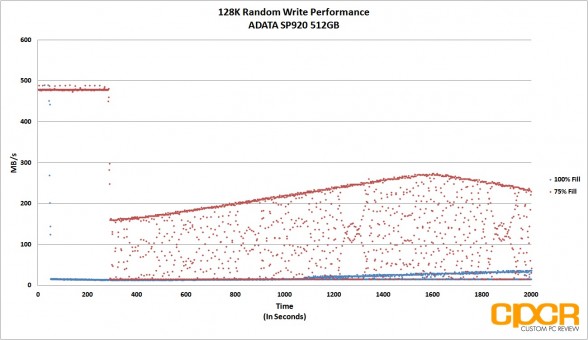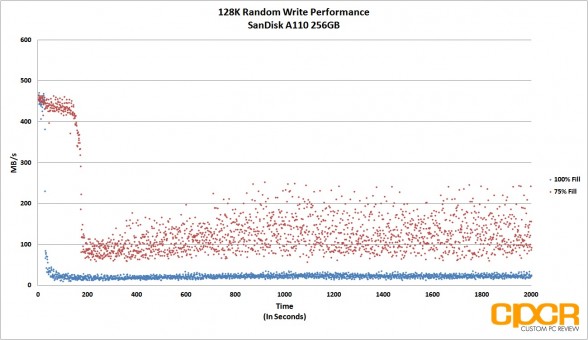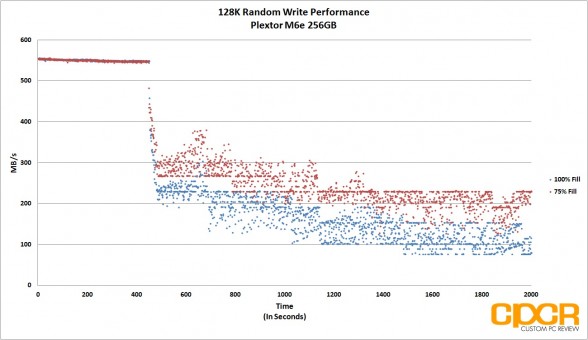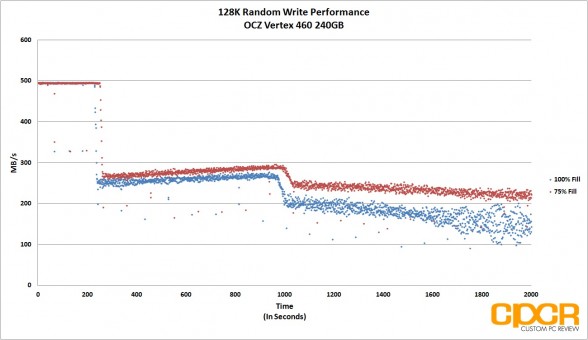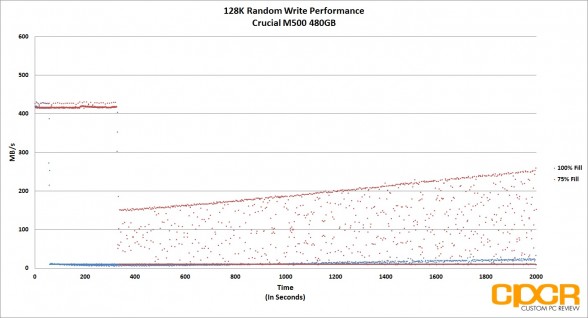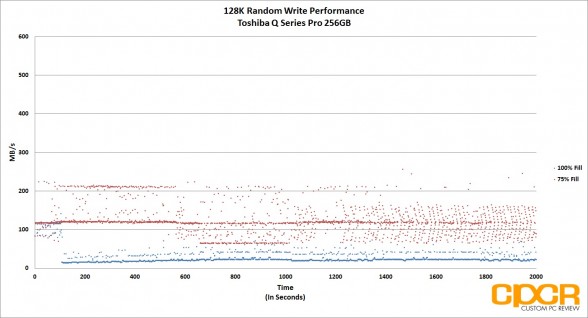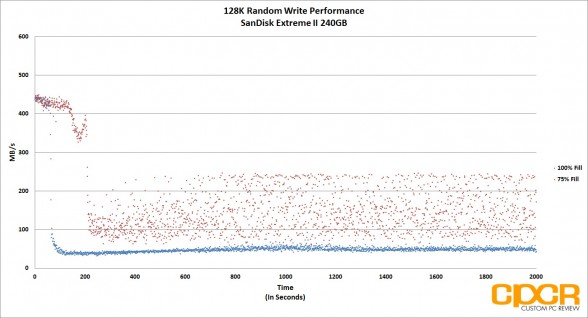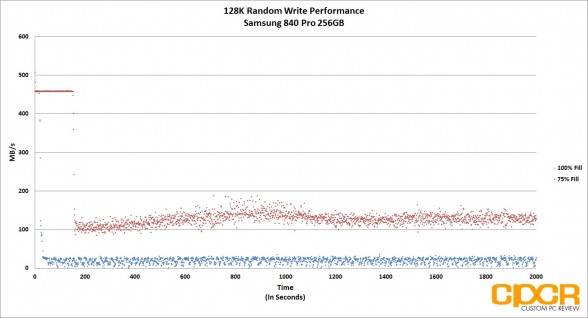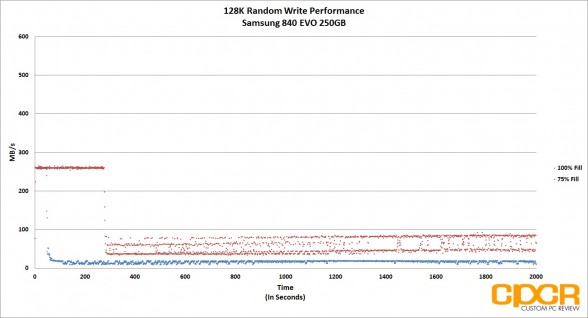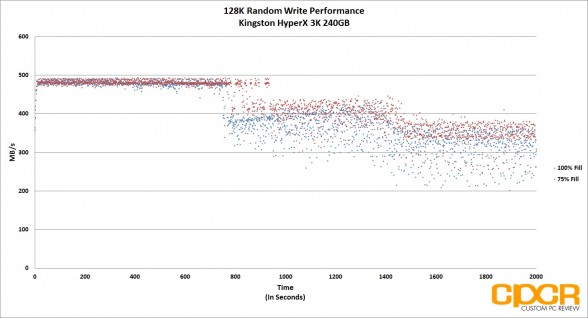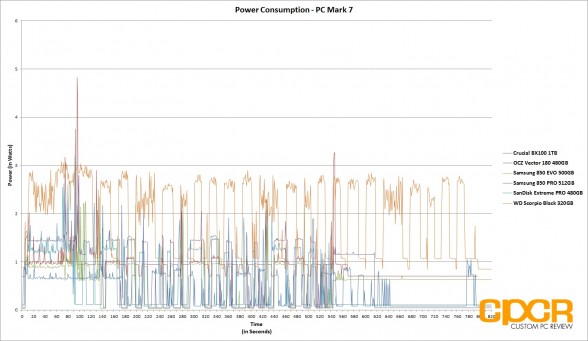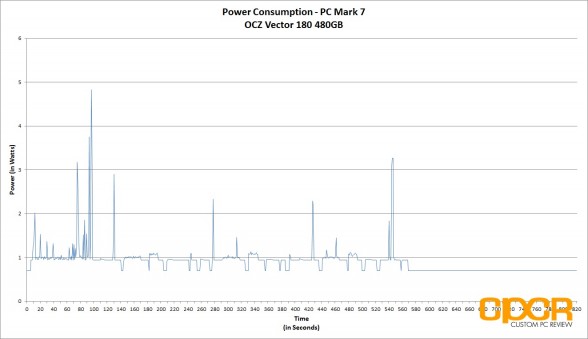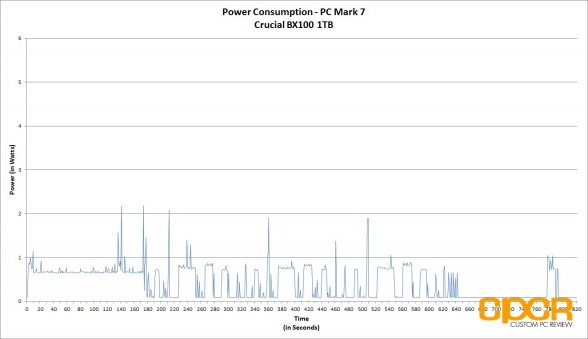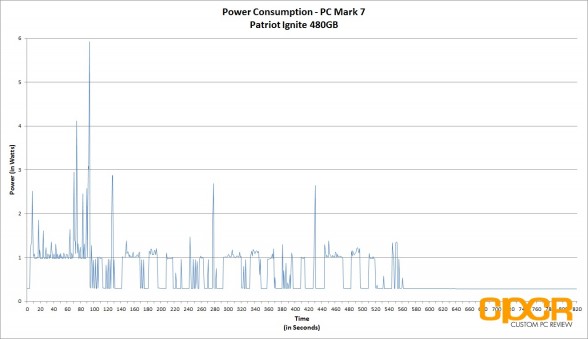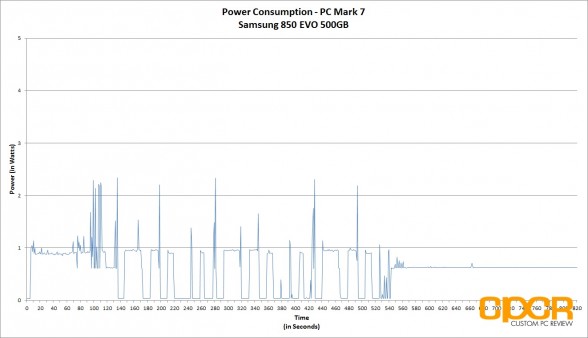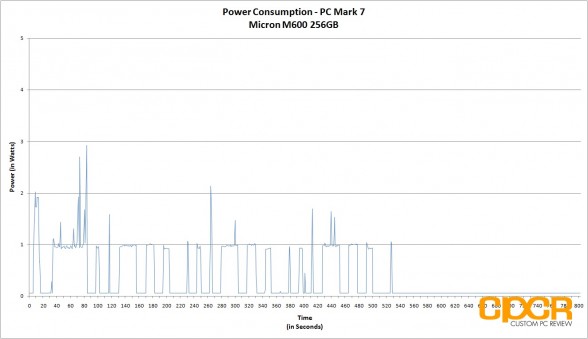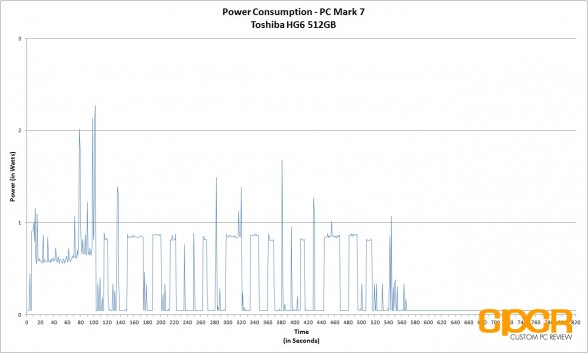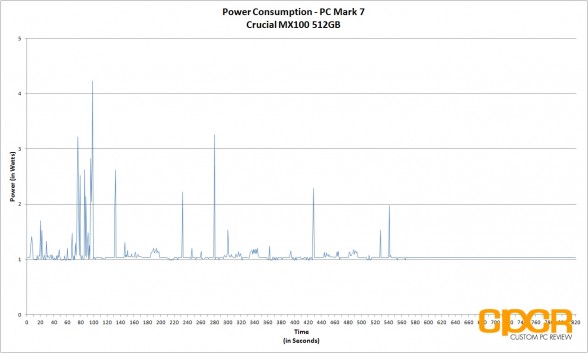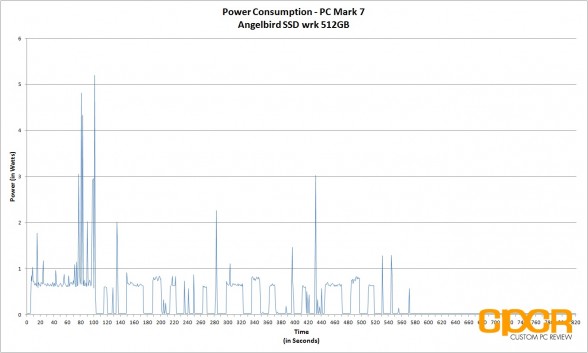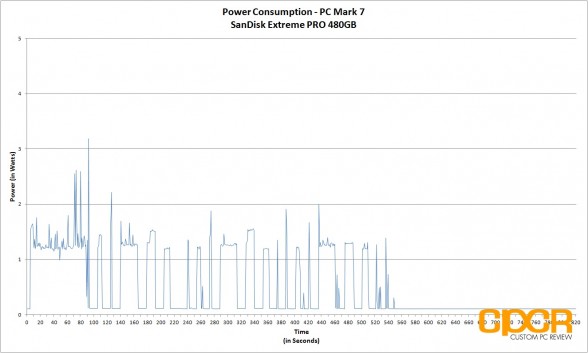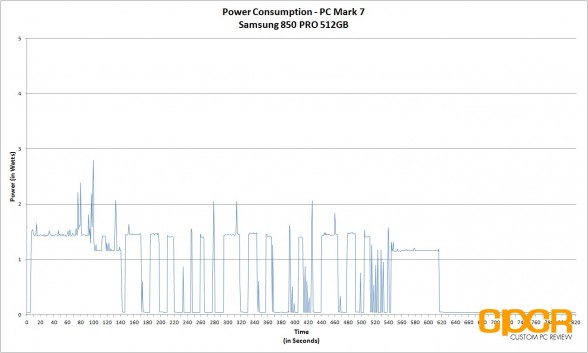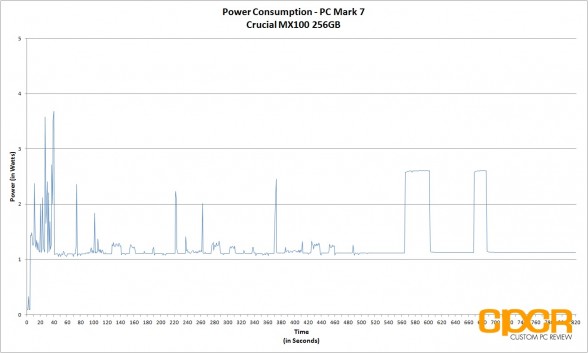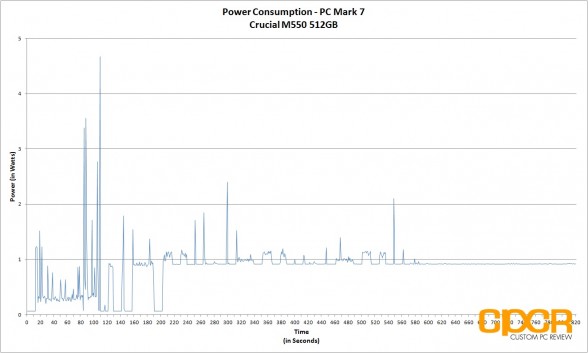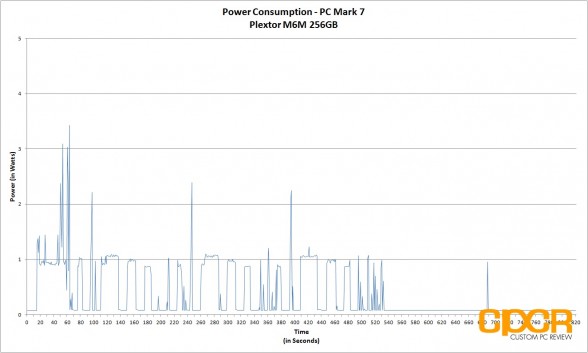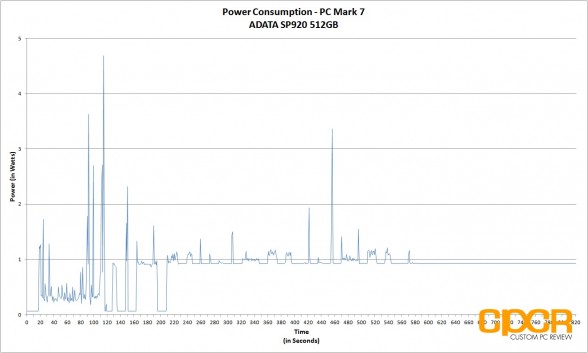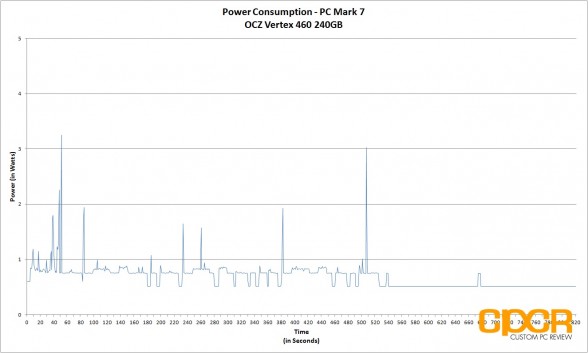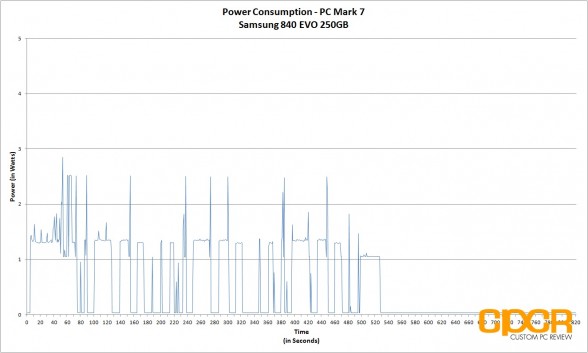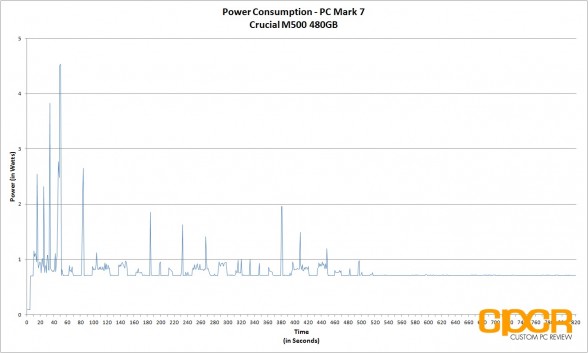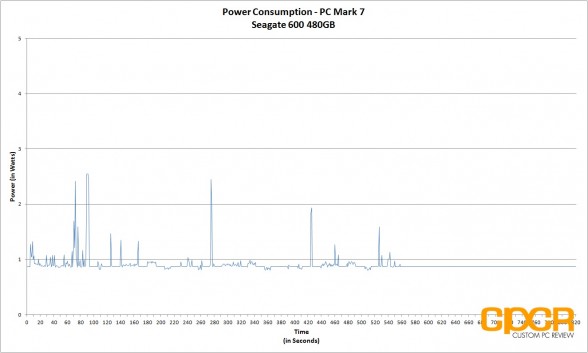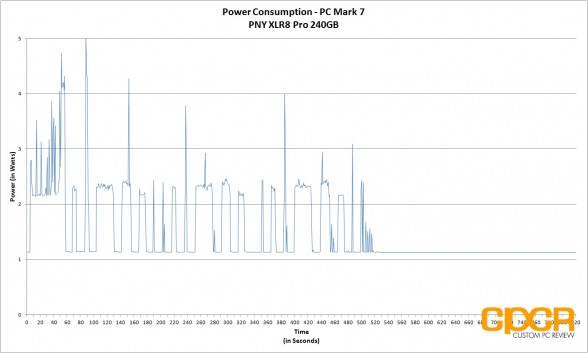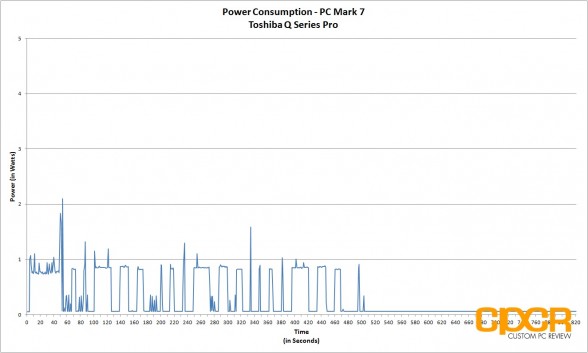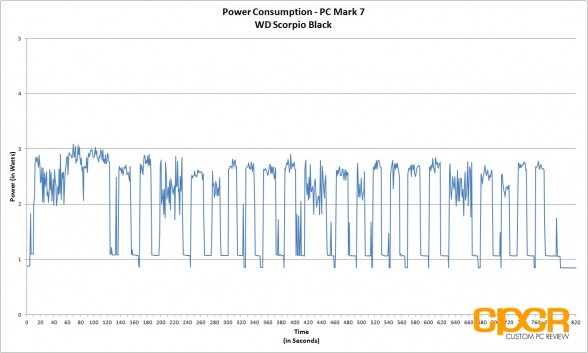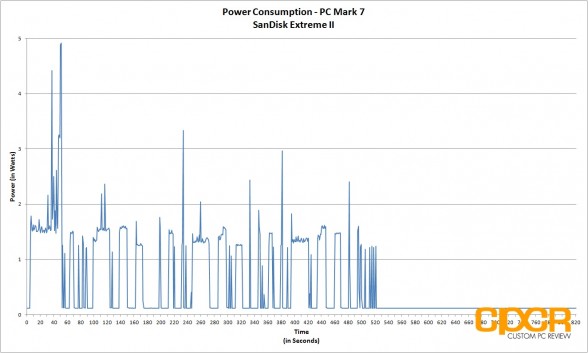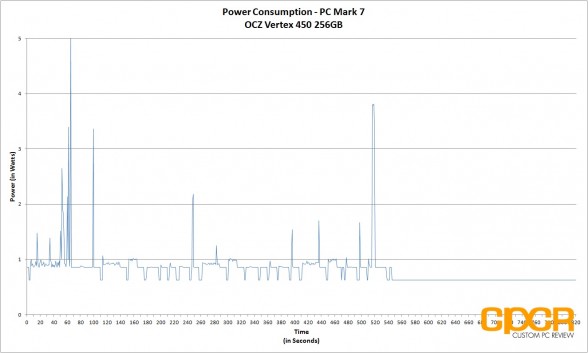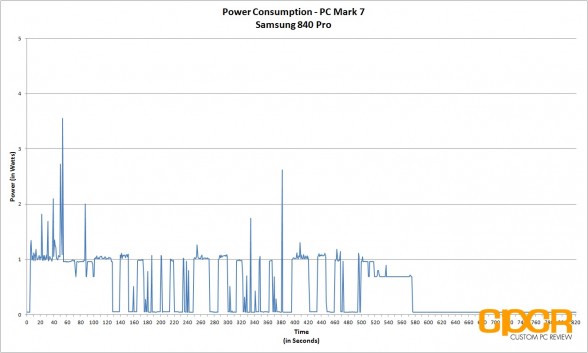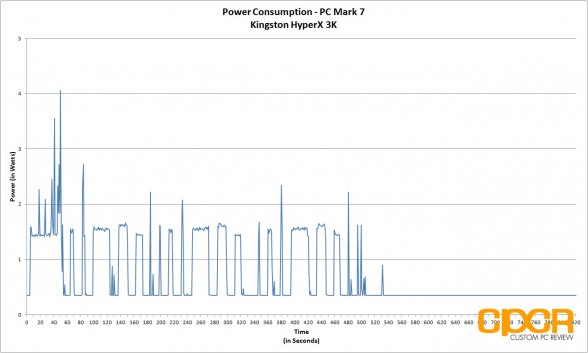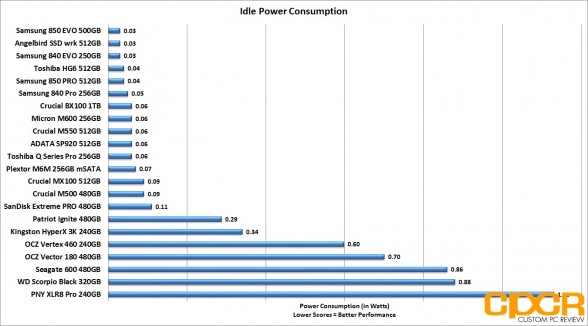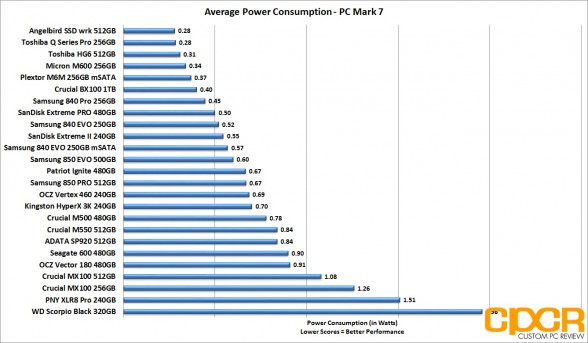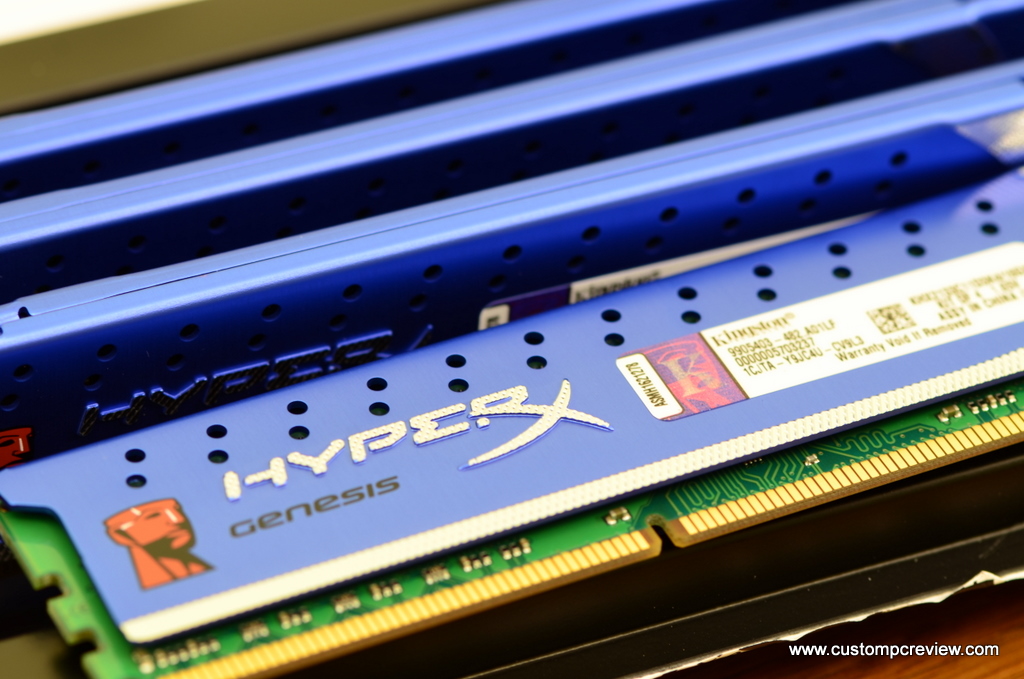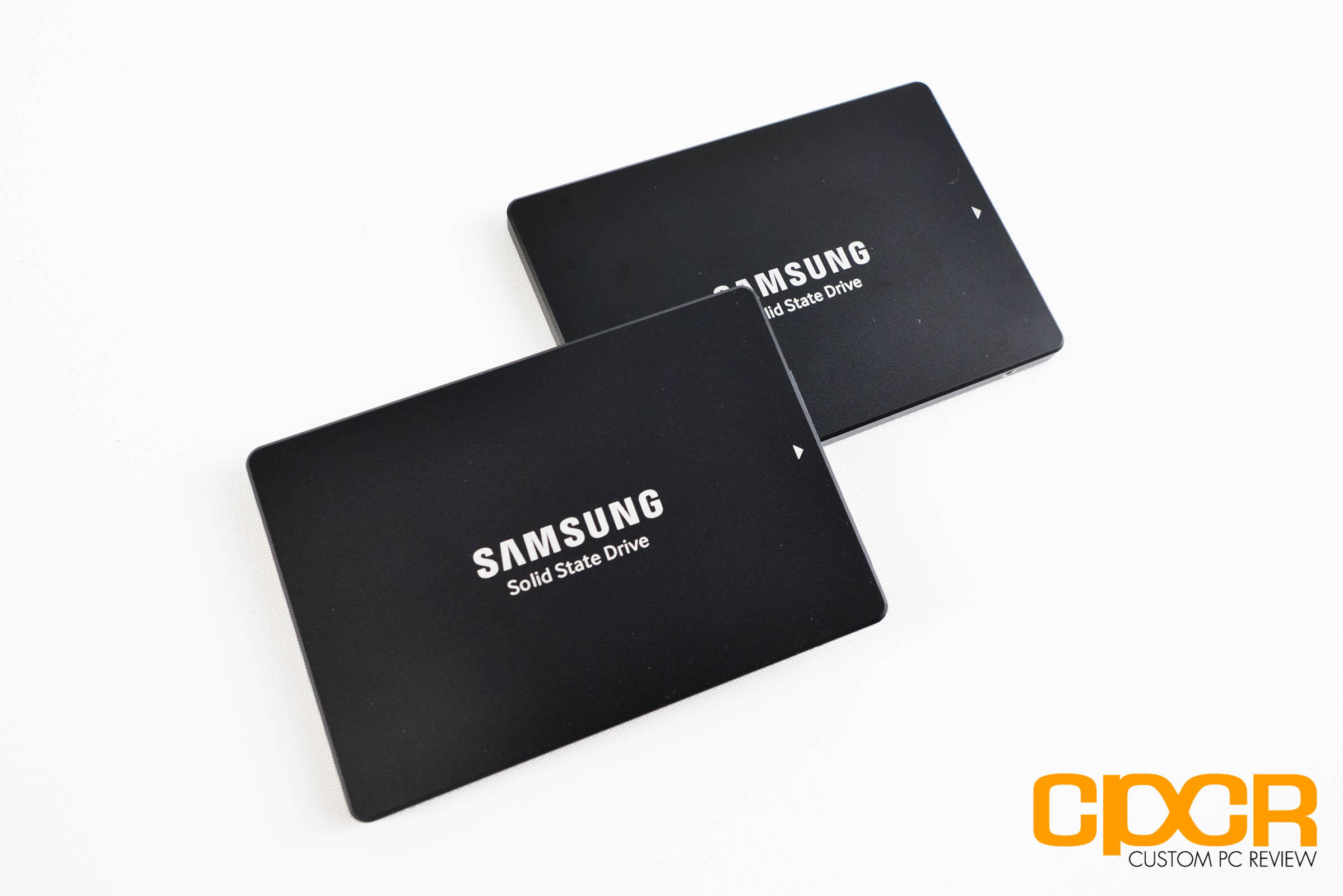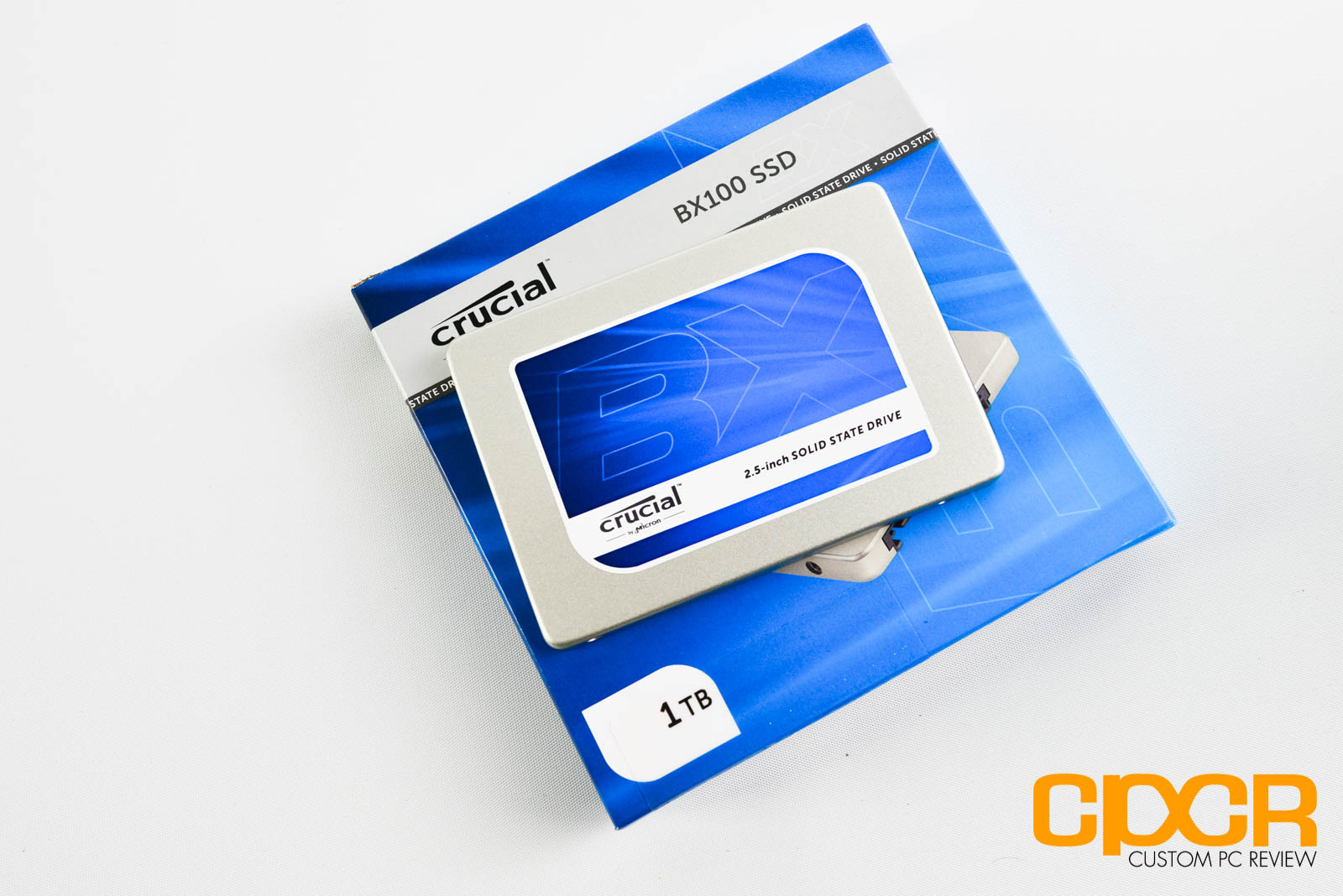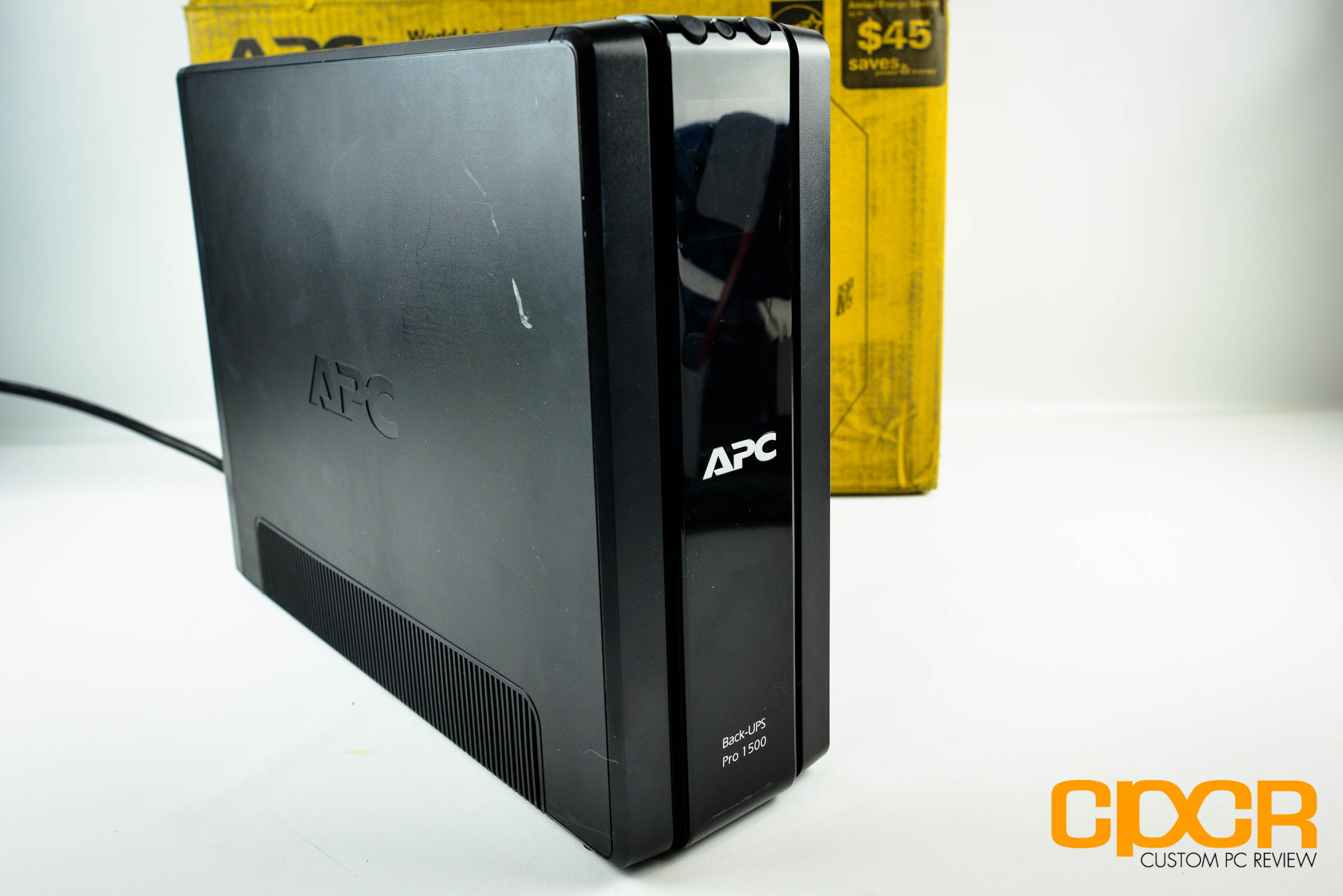[section label=1. Introduction]
The Vector Series Goes A19nm
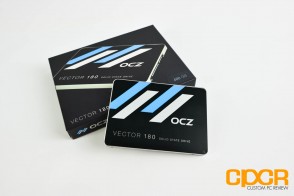 CES 2015 was a pretty big show for the entire storage industry as a whole and OCZ in particular had a strong showing this year with the unveil of their highly anticipated JetExpress controller. Along with JetExpress, OCZ was also proud to say that they’re now putting the final touches on their integration with Toshiba which includes converting their entire SSD lineup to utilize Toshiba’s latest A19nm Toggle Mode MLC NAND.
CES 2015 was a pretty big show for the entire storage industry as a whole and OCZ in particular had a strong showing this year with the unveil of their highly anticipated JetExpress controller. Along with JetExpress, OCZ was also proud to say that they’re now putting the final touches on their integration with Toshiba which includes converting their entire SSD lineup to utilize Toshiba’s latest A19nm Toggle Mode MLC NAND.
Although OCZ’s Vector series drives have been using Toshiba first generation 19nm Toggle Mode MLC since the Vector 150 was launched in late 2013, it’s now finally being replaced with the OCZ Vector 180 which bring it in line with the rest of OCZ’s lineup utilizing Toshiba second generation A19nm Toggle Mode MLC.
OCZ Vector 180 Specifications
| Manufacturer | OCZ | OCZ | OCZ | OCZ |
|---|---|---|---|---|
| Model | Vector 180 | Vector 180 | Vector 180 | Vector 180 |
| Model Number | VTR180-25SAT3-120G | VTR180-25SAT3-240G | VTR180-25SAT3-480G | VTR180-25SAT3-960G |
| Form Factor | 2.5″, 7mm | 2.5″, 7mm | 2.5″, 7mm | 2.5″, 7mm |
| Capacity | 120GB | 240GB | 480GB | 960GB |
| Controller | Indilinx Barefoot 3 M00 | Indilinx Barefoot 3 M00 | Indilinx Barefoot 3 M00 | Indilinx Barefoot 3 M00 |
| NAND | Toshiba A19nm Toggle Mode MLC | Toshiba A19nm Toggle Mode MLC | Toshiba A19nm Toggle Mode MLC | Toshiba A19nm Toggle Mode MLC |
| DRAM Cache | 512MB DDR3 | 512MB DDR3 | 1GB DDR3 | 1GB DDR3 |
| Sequential Reads | 550 MB/s | 550 MB/s | 550 MB/s | 550 MB/s |
| Sequential Writes | 450 MB/s | 530 MB/s | 530 MB/s | 530 MB/s |
| 4K Random Read | 85,000 IOPS | 95,000 IOPS | 100,000 IOPS | 100,000 IOPS |
| 4K Random Write | 90,000 IOPS | 90,000 IOPS | 95,000 IOPS | 95,000 IOPS |
| Interface | SATA 6Gb/s | SATA 6Gb/s | SATA 6Gb/s | SATA 6Gb/s |
| Warranty | 5 Years, 50GB/day | 5 Years, 50GB/day | 5 Years, 50GB/day | 5 Years, 50GB/day |
Of course, the NAND update isn’t the only thing new about the OCZ Vector 180. It’ll be now offered in capacities of 120GB, 240GB, 480GB, and for the first time, 960GB. Sequential read performance is rated at up to 550 MB/s across the board while sequential write performance is rated at up to 450 MB/s for the 120GB capacity and up to 530 MB/s for the 240GB, 480GB, and 960GB capacities.
Internally, the OCZ Vector 180 will be similar to its predecessor, the OCZ Vector 150. It’ll continue using the Barefoot 3 M00 controller which is same controller used in the original OCZ Vector launched back in late 2012. As I mentioned earlier, OCZ has updated the NAND onboard to Toshiba’s latest A19nm (second generation) Toggle Mode MLC. New for the Vector 150 is also partial power loss protection, a feature OCZ calls Power Failure Management Plus (PFM+), which we’ll get into a bit later.
Let’s take a closer look!
[section label=2. A Closer Look]
A Closer Look at the OCZ Vector 180 480GB
Here’s a look at the packaging for the OCZ Vector 180 480GB SSD.
Included in the packaging we get some documentation, an Acronis TrueImage HD key, a 2.5″ to 3.5″ adapter with screws, and the OCZ Vector 180 itself.
Here’s a closer look at the OCZ Vector 180 480GB. The metal casing and overall design is pretty similar to what we’ve seen since the original OCZ Vector several years back.
The controller onboard the OCZ Vector 180 is the same Indilinx Barefoot 3 M00 (IDX500M00-BC) that was first introduced to the market with the original OCZ Vector. It’s definitely getting a bit long in the tooth here as it still doesn’t have some of the more modern features of newer controllers such as advanced power management, TCG Opal encryption support, etc. That said, back at CES OCZ has announced plans for a new SSD controller, JetExpress, which is expected to launch within the next few months.
NAND onboard the OCZ Vector 180 is Toshiba’s A19nm (second generation) Toggle Mode MLC. OCZ’s previous Vector 150 SSD was among the last of OCZ’s drives to continue using Toshiba first generation 19nm NAND. OCZ is using a total of 16 packages of NAND for a total of 512 GiB. For the 480GB model, OCZ is using NAND chips with 64Gb dies while the 960GB model will use NAND chips with 128Gb dies.
OCZ also packs two Micron DRAM chips onboard giving the drive a total DRAM buffer of 1GB.
The newest feature for the OCZ Vector 180 Power Failure Management Plus (PFM+), which is a fancy way of saying partial power loss protection. Unlike full enterprise power loss protection systems which protect both data at rest and data in flight, partial power loss protection only protects data at rest which means flushing mapping table information, ensuring existing user data is safe and ensuring onboard firmware data stays intact as well. While it’s not common occurrence, any sudden power loss event on a drive without power loss protection does have the potential of bricking a drive or corrupting onboard data.
[section label=3. Testing Setup, Drive Info, Software]
Testing Setup
| System | CyberPowerPC Gamer Xtreme 4200 |
|---|---|
| CPU | Intel Core i7-4770K |
| Motherboard | ASUS Z87-A |
| Memory | Kingston HyperX Genesis 16GB DDR3 2133MHz |
| Graphics | Intel HD4600 Graphics |
| Storage | OCZ Vertex 4 256GB |
| Power Supply | Corsair HX650 |
| Case | HSPC High Speed Tech Station |
| Optical Drive | ASUS OEM DVD Drive |
| Operating System | Windows 8 64 bit & CentOS 6.4 |
Special thanks to CyberPowerPC, Kingston, OCZ Storage Solutions and HSPC for sponsoring our test bench!
Crystal Disk Info
OCZ Vector 180 480GB
Today we’ll be reviewing the OCZ Vector 180 480GB with firmware 1.01.
Software (SSD Guru)
Along with the Vector 180, OCZ is also launching SSD Guru, which is a slick new software suite designed for OCZ’s Barefoot 3 powered drives and the RevoDrive 350. SSD Guru is a fairly standard in terms of features for a software suite and gives users all the basics including information about their SSD, ability to TRIM the drive, ability to further overprovision their drive, perform a secure erase, perform firmware updates, etc.
[section label=4. ATTO Disk Benchmark / AS SSD / Crystal Disk Mark]
OCZ Vector 180 480GB Performance
ATTO Disk Benchmark v2.46
ATTO Disk Benchmark is one of the industry’s oldest and most popular benchmarks for testing disk read/write speeds. This benchmarks allows read and write testing using predefined block sizes and gives us a good idea of read/write speeds with different sized files. Most SSD manufacturers prefer using this benchmark when advertising SSDs as it tests using compressible data, which tends to yield best performance.
Performance Analysis
As usual, we kicked off our testing with ATTO Disk Benchmark. Overall the results were decent with sequential read/write performance reaching a maximum of 550/521 MB/s respectively. That said, there were some strange drops in read and write performance which occur at different block sizes and at different queue depths.
AS SSD Benchmark
AS SSD is a very commonly used benchmark used to measure SSD performance in sequential, 4K, 4K QD64 and latency. Tests are run using 100% incompressible data. AS SSD also outputs a final score at the conclusion of the test based off the overall performance of the drive.
Additionally, we also run AS SSD’s included compression benchmark which tests the drive using data of varying compressibility. Some SSDs such as SandForce based SSDs tend to perform significantly better when the data is compressible.
Performance Analysis
AS SSD performance is solid with the drive reaching a maximum sequential read performance of 507 MB/s and maximum sequential write performance of 490 MB/s.
Crystal Disk Mark 3.0.1 x64
Crystal Disk Mark is another popular benchmark which allows us to measure both sequential read/write speeds as well as random read/write speeds. With this benchmark, tests can be run using both random fill (incompressible data) and 0 fill (compressible data). Realistically in typical computer usage scenarios, data being transferred will consist of a mixture of both incompressible and compressible data.
Performance Analysis
Again, we can see excellent results with Crystal Disk Mark that’s very representative of an enthusiast product.
[section label=5. PC Mark 7 / PC Mark 8]
OCZ Vector 180 480GB Performance
PC Mark 7 Storage Benchmark
The PC Mark 7 storage benchmark is a trace based benchmark that evaluates the SSD under many different real world environments such as gaming, multimedia editing, etc. PC Mark 7 uses a relatively light workload, which represents a typical mainstream client storage sub-system workload.
Performance Analysis
Looking at PC Mark 7, the results aren’t too encouraging. Our 480GB sample of the Vector 180 was beaten by the original 256GB OCZ Vector which was released several years back. The Vector series drives have always been focused on sustained performance rather than bursty performance, so this is a bit expected.
PC Mark 8 Expanded Storage Benchmark
With the introduction of PC Mark 8 2.0.228, Futuremark added the option for an Expanded Storage Benchmark which is literally designed to bring any storage system its absolute limits. The new PC Mark 8 Expanded Storage Benchmark takes around 24 hours to run and for our purposes, we’ll be using the consistency test which measures performance consistency, degradation tendency, and recovery speed of a storage system.
Consistency Test
Full details on the consistency test can be found in the PC Mark 8 Technical Guide here. For the more simplified version, the test is basically a near 24 hour, five phase benchmark – three of which we’ll be reporting on in our results below.
- Phase 1 is a precondition phase designed to “dirty” the drive with random data. The entire drive is filled twice to the capacity of the drive.
- Phase 2 is a degrade phase where the drive is hammered with tons of random data followed by a performance test run. This is done 8 times.
- Phase 3 is the steady state phase where the drive is once again hammered with tons of random data followed by a performance test run. This is done 5 times.
- Phase 4 is the recovery phase where the drive is given 5 minutes to rest followed by a performance test run. This is done 5 times.
- Phase 5 is the clean up phase where the drive is simply secure erased.
Performance Analysis
PC Mark 8’s Extended Performance benchmark is really where the OCZ Vector 180 shines. Because its controller is designed for heavier workloads, the OCZ Vector 180 did pretty well, but is still beat by the SanDisk Extreme PRO and the Samsung 850 PRO.
[section label=6. FIO – FOB]
OCZ Vector 180 480GB Performance
FIO (Flexible I/O Tester)
FIO, which stands for Flexible I/O Tester, is basically what its name says – a flexible I/O tester / I/O workload generator. Whereas all the benchmarking tools we’ve used previously are fantastic, easy to use benchmarking tools that provide a good snapshot of SSD performance, they do lack a lot of versatility, especially for more complex and in-depth operations such as custom queue depths, block sizes, test run times, etc. While the testing that follows may not pertain to typical consumer usage, they do help give us a much more in-depth look at each individual product’s strengths and weaknesses when they’re pushed to the limits.
FIO – FOB (Fresh Out of the Box) Testing
When SSDs are brand new and Fresh Out of the Box, they’re generally able to perform at or outperform their advertised speeds, but unlike traditional hard drives, performance on SSDs begin to degrade over time as they become more and more used. This is because while SSDs are new, all bits on the SSD are empty, so they can instantly be programmed with data. However, once data gets programmed in, even if it’s deleted in the filesystem the actual data will still stay programmed on the NAND itself unless some sort of garbage collection routine comes in to wipe the data. Unfortunately, in order to write new data onto “dirty” NAND, the NAND first needs to go through an erase cycle to erase the old data before a program cycle can happen to program new data, which as you may imagine takes more time than just a simple program cycle. As this only happens when writing new data onto the SSD, you’ll generally see less performance degradation on reads and more performance degradation on writes.
For our FOB testing, we run a secure erase on the SSD then run each test sans any preconditioning. This will provide us with the highest level of performance the SSD is capable of and is likely never to be seen ever again once the SSD goes into a used state.
Our testing will include 4K read testing, 4K write testing, and 4K 70/30 read/write mix testing at queue depths of 1,2,4,8,16,32,64,128,256. The reason we’ve also included 4K 70/30 read/write mix testing is simply because most real world workloads will always fall somewhere between 0% write and 100% write rather than one or the other. Since client usage is much more read heavy, we’ll be using the 70/30 read/write mix.
For general client usage, performance will fall somewhere between queue depths of 1-4 whereas servers and other enterprise applications will easily see queue depths of 32 or greater.
Performance Analysis
Fresh out of the box, performance on the OCZ Vector 180 is relatively competitive with 4K random read/write performance maxing out at 97,000/87,000 IOPS respectively. Mixed workload performance was decent as well with the drive capable of reaching 90,000 IOPS without issue. So far so good.
[section label=7. FIO – Steady State]
OCZ Vector 180 480GB Performance
FIO – Steady State Testing
After prolonged use of an SSD, it will reach “steady state” where performance levels off to a minimum level. The FOB state is the “best case scenario” for SSD performance while “steady state” is going to be your worst. Here, we ran the exact same set of benchmarks we just completed in the FOB state; except this time around, we’ll be preconditioning the drive by filling 100% of the drive’s LBAs with two sequential passes of 128k data followed by hammering the drive for six hours with 4K random data prior to actual testing.
Performance Analysis
Generally what separates the enthusiast drives from the mainstream drives is steady state performance and the OCZ Vector 180 does deliver on that front. On 4K random reads, steady state performance was able to reach ~96,000 IOPS at QD32 and above although performance at lower queue depths is a bit lacking compared to competitors such as the SanDisk Extreme PRO and the Samsung 850 PRO. In 4K random writes, steady state performance was able to reach ~22,000 IOPS, beating its competitors at all queue depths. Mixed workload performance was similar to 4K random reads in that performance begins to ramp up significantly as higher queue depths are pushed.
[section label=”8. FIO – 4K Random Write Consistency”]
OCZ Vector 180 480GB Performance
FIO 4K Random Write Consistency Testing
Another one of the benefits of testing with FIO is the flexibility of running consistency tests, which is one of the most important metrics when considering SSDs going forward. Looking at the results of our benchmarks such as ATTO Disk Benchmark and Crystal Disk Benchmark, we can see that practically every top tier SSD is capable of saturating SATA 6Gb/s in the FOB state. However, what really differentiates these SSDs is their ability to hold a certain level of performance even after extended periods of use.
For our consistency testing, we used a fairly standard method, which includes both filling up 75% of capacity as well as 100% capacity twice with sequential 128k data followed by the actual test itself, which is simply running 4K random writes at a queue depth of 32. By recording the IOPS every second for 2,000 seconds, we’re able to get a good look at what kind of performance can be expected when the drive is relatively new, when it’s heading towards steady state, and when it’s actually in steady state.
[tabgroup]
[/tabgroup]Performance Analysis
Looking at our 4k random write performance consistency results here, I’m actually quite disappointed with the Vector 180. Not only is there very little consistency in 4k random write performance, it’s the first drive I’ve seen that will stall every ~22 or so seconds, dropping down to 0 IOPS. At 75% fill, the same thing happens, except stalling occurs around every 34 seconds or so.
[section label=”9. FIO – 4K Random Write Latency”]
OCZ Vector 180 480GB Performance
FIO 4K Random Write Latency Testing
Another metric that’s becoming increasingly important in SSDs is its ability to keep latency low despite being subjected to a heavy workload. Even if a SSD were capable of ultra high and ultra consistent IOPS performance, if latency were high, users would still feel that the drive is slow. Ideally, SATA SSDs should always be capable of latencies under 50ms, even during heavy workloads.
For latency testing, we’ll be using the exact same testing parameters as IOPS consistency testing, except instead of recording IOPS every second, we’ll be recording latency.
[tabgroup]
[/tabgroup]Performance Analysis
Latency at 100% fill isn’t as impressive as competing enthusiast drives, but OCZ does manage to keep it under 50ms so user experience shouldn’t be impacted too heavily.
[section label=”10. FIO – 128K Random Write”]
OCZ Vector 180 480GB Performance
FIO 128K Random Write Consistency Testing
In addition to testing 4K random write consistency, we’ll also test for 128K random write consistency to see how well a SSD is able to hold itself to a level of performance when getting hammered with larger file transfers.
Testing methodology is very similar to our testing for 4K random write consistency. We use a fairly standard method, which includes both filling up 75% of capacity as well as 100% capacity twice with sequential 128k data followed by the actual test itself, which is running 128K random writes at a queue depth of 32. By recording the IOPS every second for 2,000 seconds, we’re able to get a good look at what kind of performance can be expected when the drive is relatively new, when it’s heading towards steady state, and when it’s actually in steady state.
[tabgroup]
[/tabgroup]Performance Analysis
Similar to what we saw in the 4K random write consistency testing, 128K random writes are not only inconsistent, but performance stalls out from time to time as well although not as bad as what we’re seeing in 4K random writes.
[section label=”11. Power Consumption”]
OCZ Vector 180 480GB Power Consumption
Previously, our power consumption analysis only tested for idle and maximum load power consumption, but we felt that this was a bad way to accurately measure power consumption. The reason for this is because SSDs tend to be bursty while in operation and will spike in power usage, but only for very short periods of time. As such, many of our SSDs appeared to have even higher power consumption than traditional hard drives, which is untrue.
In order to better represent a drive’s power consumption, our solution was to run a test closer to the real-world and record a trace of the exact power consumption during testing. Since PC Mark 7 has been recognized by the industry as a fantastic real-world benchmark, we’ll be recording the drive’s power consumption while running the benchmark.
All tests below are measured by our B&K Precision 5491B Bench Multimeter tapped directly into the 5v line running from the power supply to the drive. All testing here is conducted with “HIPM (Host Initiated Power Management)/DIPM (Device Initiated Power Management)” enabled and “AHCI Link Power Management – Adaptive” set to 0 milliseconds for maximum power efficiency.
[tabgroup]
[/tabgroup]Performance Analysis
The Barefoot 3 controller has never really been one to support low power states and not much as changed with the Barefoot 3 in the OCZ Vector 180. Idle power consumption sits relatively high at 0.70w and power consumption during our PC Mark 7 run averaged ~0.91w.
[section label=12. Conclusion]
OCZ Vector 180 480GB Conclusions
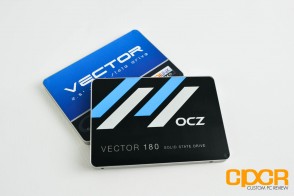 When OCZ first unveiled the Vector series, it was almost a make it or break it type of product that was designed to help keep the company afloat. After getting hit hard in the reputation department with the SandForce fiasco a couple years prior and executive mismanagement of the company, OCZ was trying hard to rebuild itself into its former glory as a leader of reliable, high performance SSD products. This gave rise to the OCZ Vector which would then be the first OCZ SSD to use their newly developed Indilinx Barefoot 3 controller. Several years later, we now have the OCZ Vector 180, which as you’ve seen in testing is unfortunately not much more than an evolution of the original product.
When OCZ first unveiled the Vector series, it was almost a make it or break it type of product that was designed to help keep the company afloat. After getting hit hard in the reputation department with the SandForce fiasco a couple years prior and executive mismanagement of the company, OCZ was trying hard to rebuild itself into its former glory as a leader of reliable, high performance SSD products. This gave rise to the OCZ Vector which would then be the first OCZ SSD to use their newly developed Indilinx Barefoot 3 controller. Several years later, we now have the OCZ Vector 180, which as you’ve seen in testing is unfortunately not much more than an evolution of the original product.
That being said, this doesn’t mean it’s not competitive. Performance on the OCZ Vector 180 480GB was decent and in most instances quite competitive against other enthusiast SSDs. OCZ also greatly improved mixed workload performance along with steady state write performance, which is nice to see. One thing I did notice when testing the drive is that it exhibited some strange behavior in our 4K and 128K random write trace testing where we saw the drive’s performance periodically stall out every so often. As such I sent the results to OCZ who responded with the following:
“Thank you for your inquiry in regards to the I/O behavior on the Vector 180 Series. What is being observed is a characteristic of the design of the drive itself and is a result of the firmware performing updates to its metadata mapping table and flushing the entire table out of DRAM and onto the NAND flash, during which I/O throughput is impacted for very brief periods. Our metadata management is done on a frequent basis to prevent failure modes related to bricked drives as a result of metadata corruption, which can potentially happen on other non PFM+ enabled SSDs as a result of unexpected power loss. This is observed to a greater extent on the larger drives (960GB) where there is more metadata to manage. While this phenomenon is observable in synthetic benchmarks, there is virtually no impact to typical client grade end-user applications and during real world use. With the Barefoot 3 based Vector 180 Series design, we strove to deliver the optimal balance of performance and reliability for our valued enthusiast and workstation customers.” – Daryl Lang, CTO, OCZ Storage Solutions
On one hand, I’m very happy to see that OCZ is making reliability such a big deal in the Vector 180. The original goal of the Vector series was not only high performance but also reliability as well and it’s nice to see that OCZ is reworking algorithms and putting in circuitry to mitigate any reliability concerns including sudden power loss. That being said, this type of performance consistency issue isn’t happening on competing performance SSDs so hopefully OCZ can rework their algorithms to ensure that performance stays consistent even as the drive is flushing the mapping tables.
As for power consumption, the Barefoot 3 controller still lacks the capability of running at low power states, so power consumption on the OCZ Vector 180 is still among the worst on the market. Those looking for a SSD for mobile use should definitely take a look at drives powered by Samsung, SMI or Marvell.
| Manufacturer | OCZ | OCZ | OCZ | OCZ |
|---|---|---|---|---|
| Model | Vector 180 | Vector 180 | Vector 180 | Vector 180 |
| SKU | VTR180-25SAT3-120G | VTR180-25SAT3-240G | VTR180-25SAT3-480G | VTR180-25SAT3-960G |
| Capacity | 120 GB | 240 GB | 480 GB | 960 GB |
| Street Price | $89.99 | $149.99 | $269.99 | $499.99 |
| Price/GB | ~$0.75 | ~$0.62 | ~$0.56 | ~$0.52 |
| Check Price | Click Here | Click Here | Click Here |
Currently, the OCZ Vector 180 480GB can be found at various online retailers for $269.99, which is approximately $0.56/GB. This is competitive against competitor products such as the Samsung 850 PRO 512GB (~$0.56/GB) and the SanDisk Extreme PRO 480GB
(~$0.58/GB). As expected, the least expensive drive in the Vector 180 lineup is the 960GB capacity, which currently retails for ~$0.52/GB.
Overall the OCZ Vector 180 is a decent product for general client use and I’m quite a bit more confident in the reliability of the Barefoot 3 controller and the onboard NAND than I was when the original Vector was released. Additionally, it seems like OCZ is really pulling all the stops to address any reliability concerns they’ve seen over the past few years, but amid issues with write consistency, I feel like the Samsung 850 PRO and the SanDisk Extreme PRO are simply better options at a relatively similar pricepoint. If you happen to come across a really great deal on the OCZ Vector 180, then there’s no reason not to jump on it as it’s still a great product for lighter workloads, but otherwise, I’d probably recommend waiting for OCZ to launch JetExpress powered SSDs which are expected to be coming later this year.
Sample provided by: OCZ Storage Solutions
Availability: Amazon

